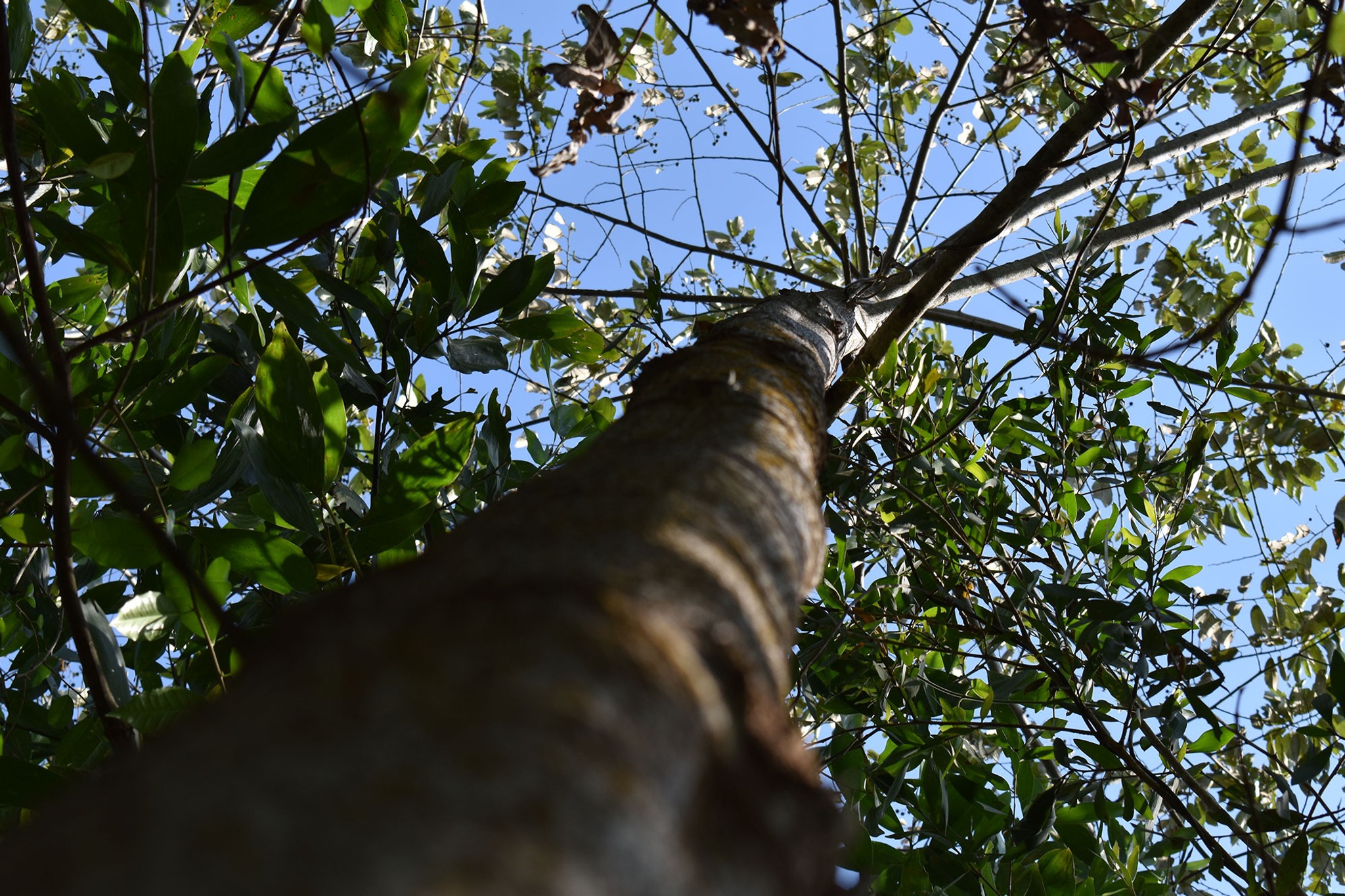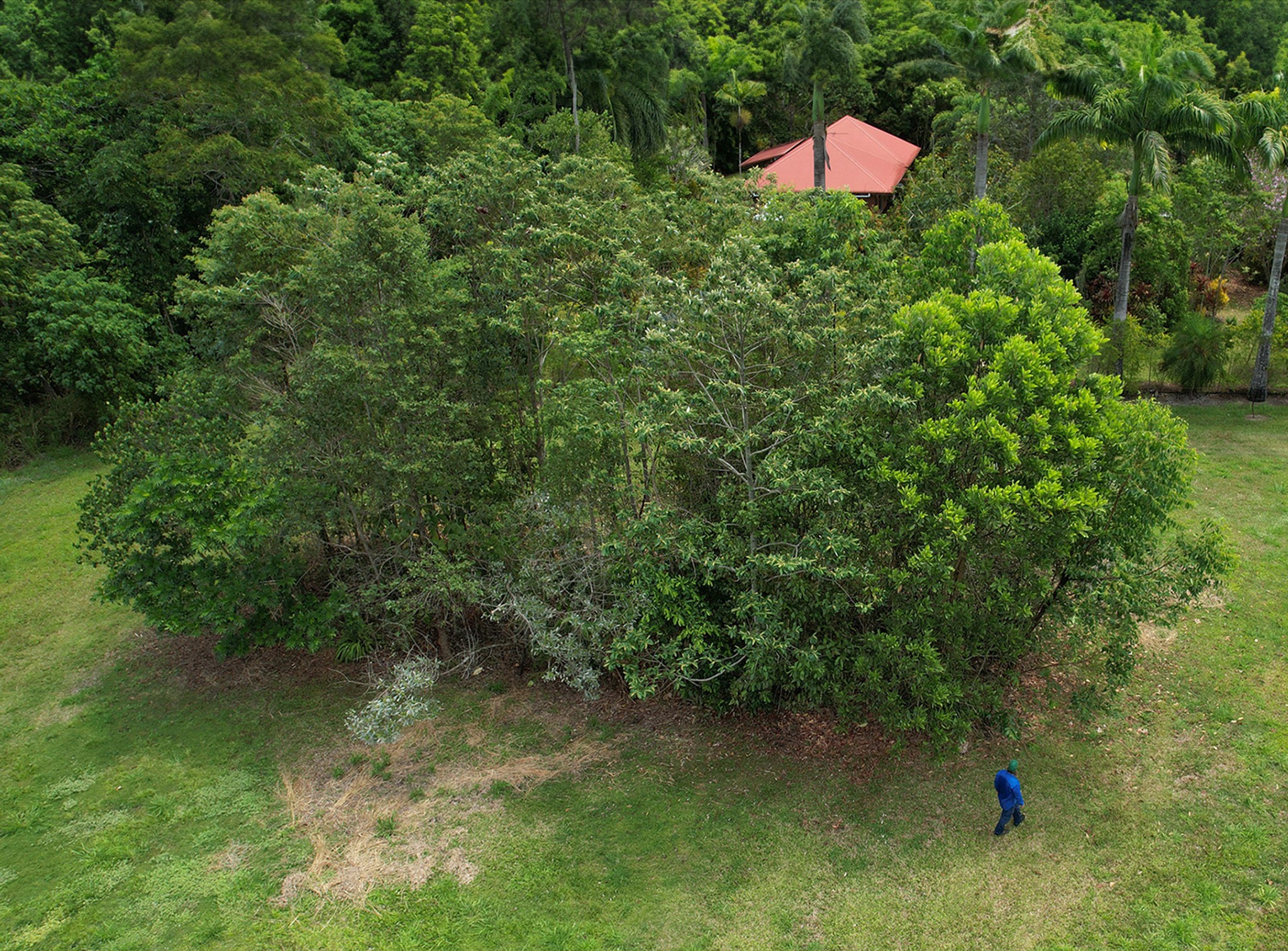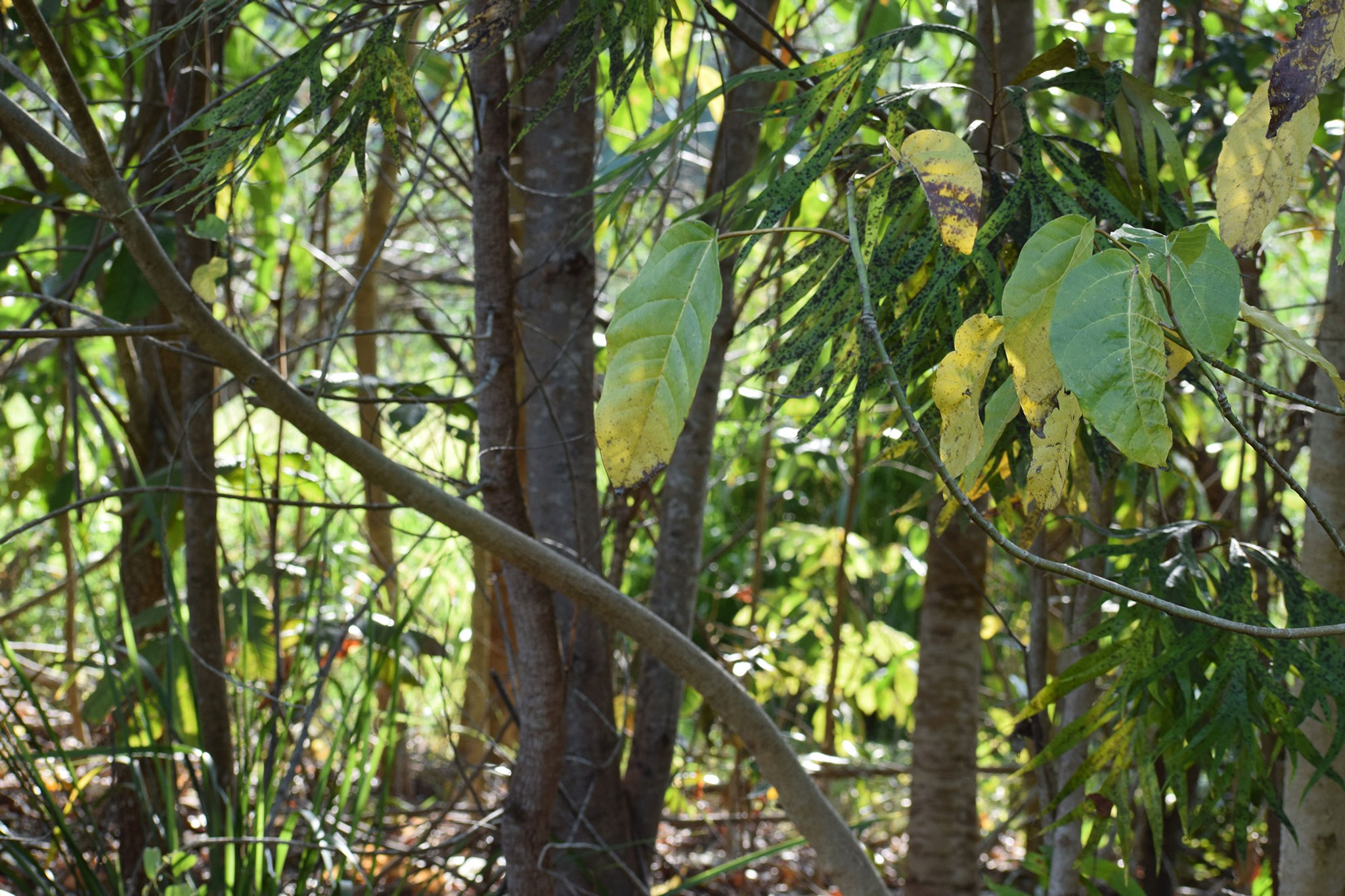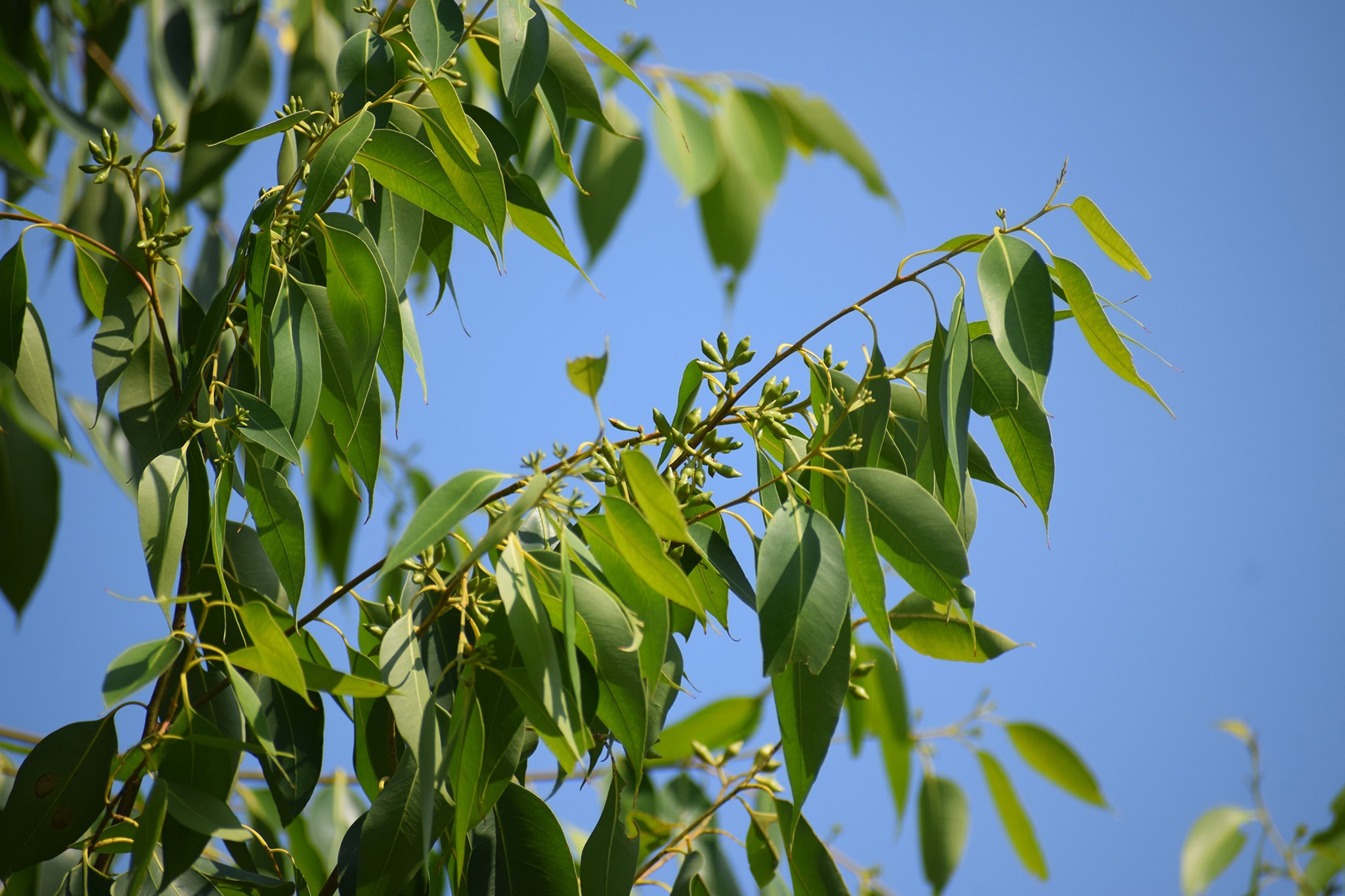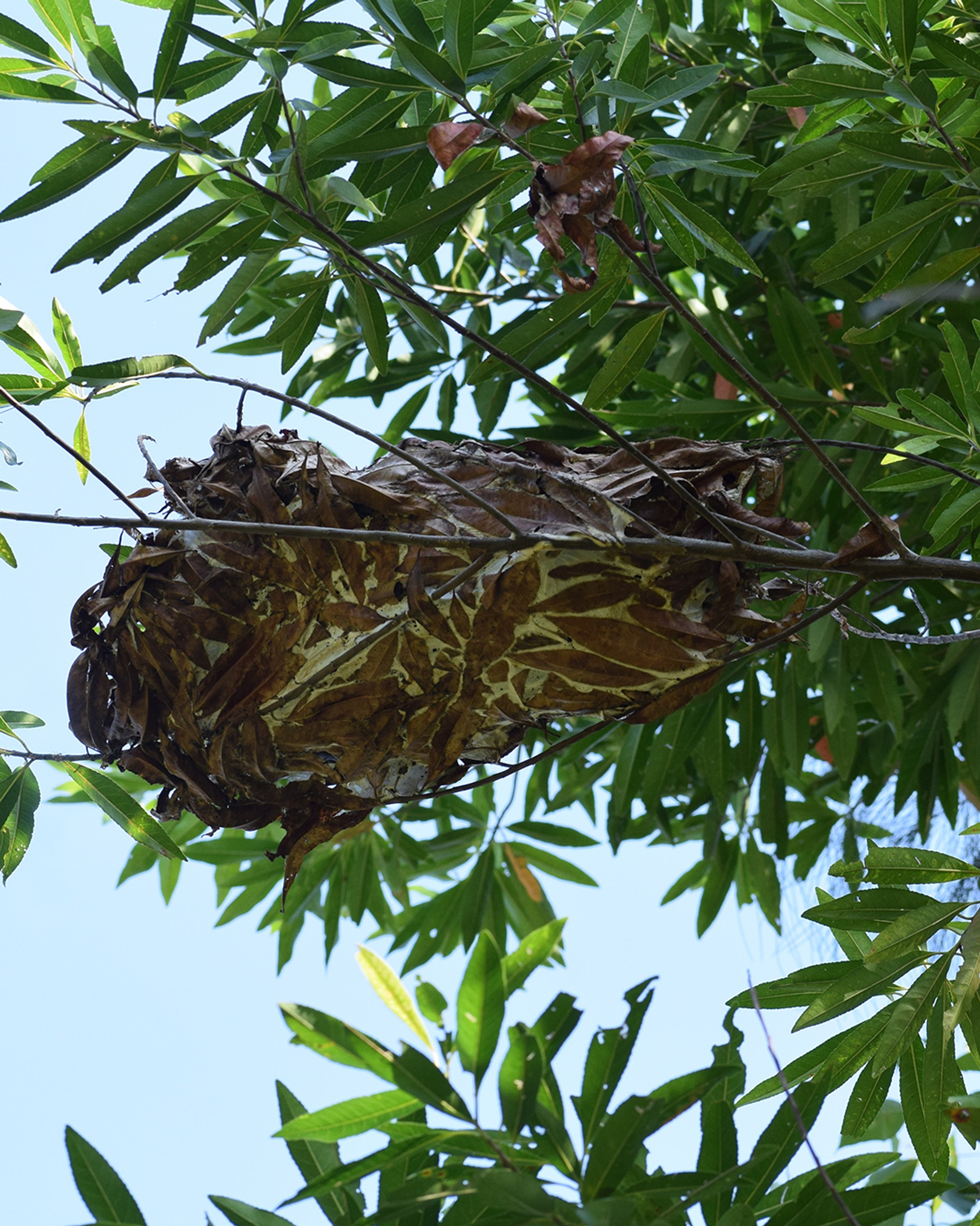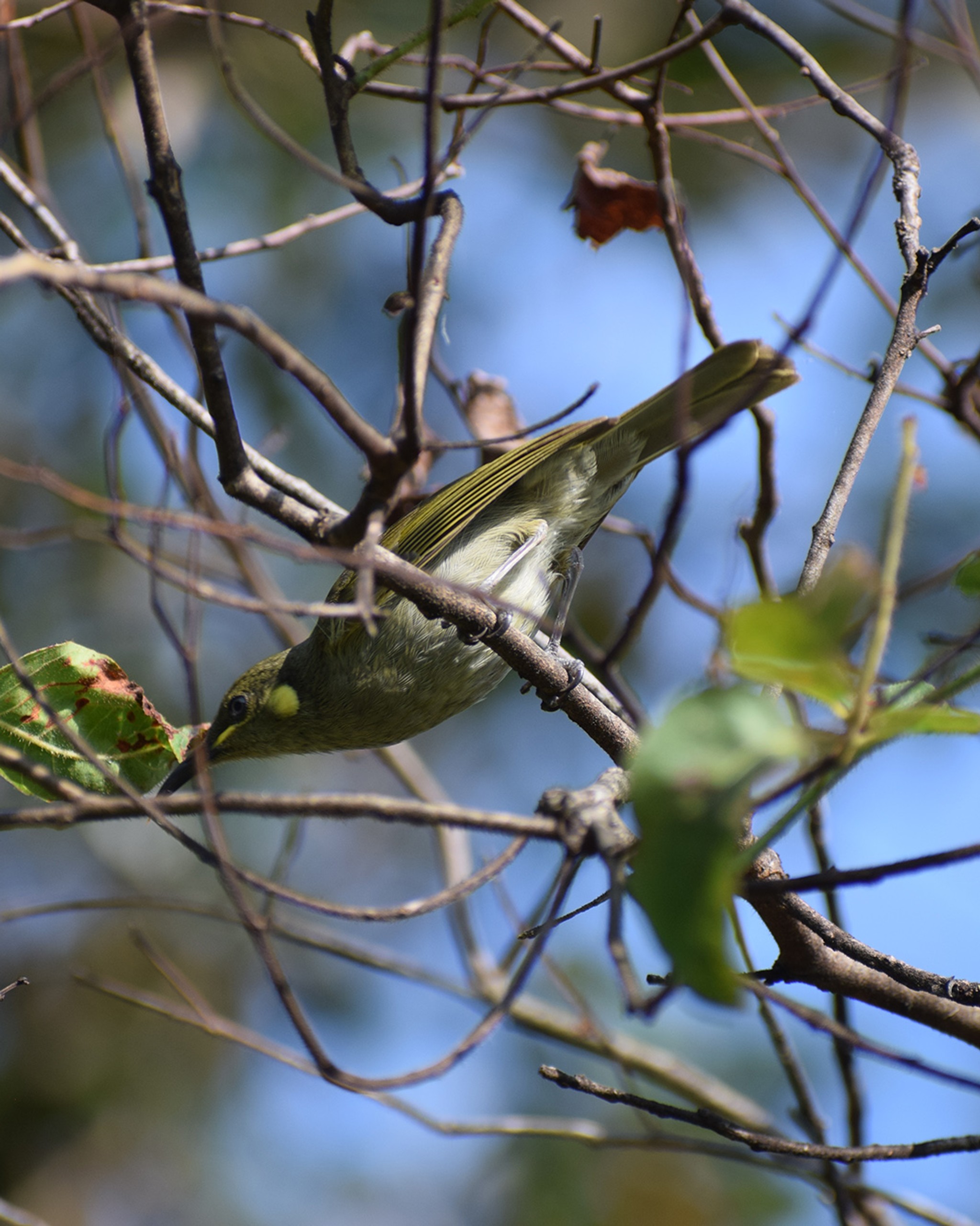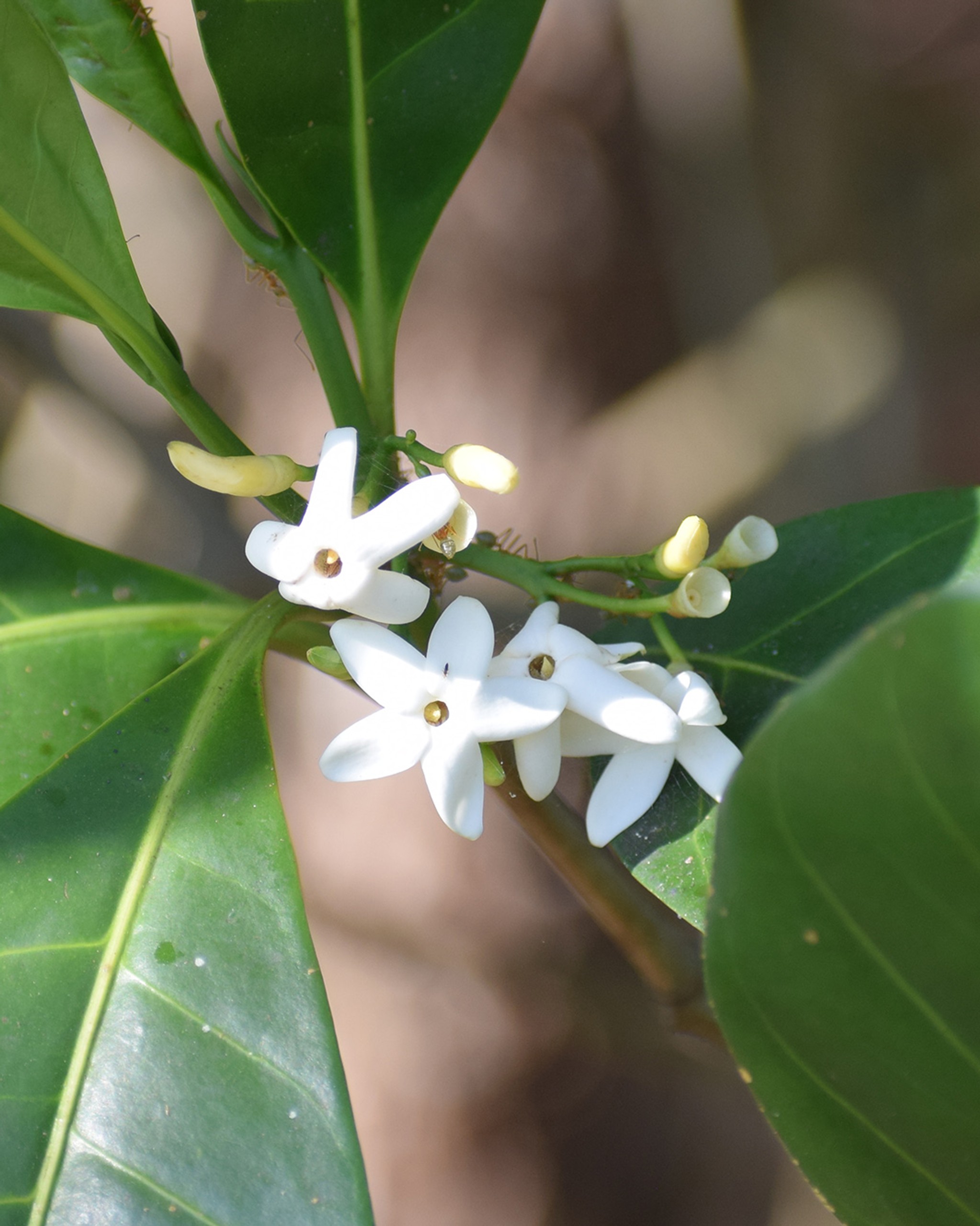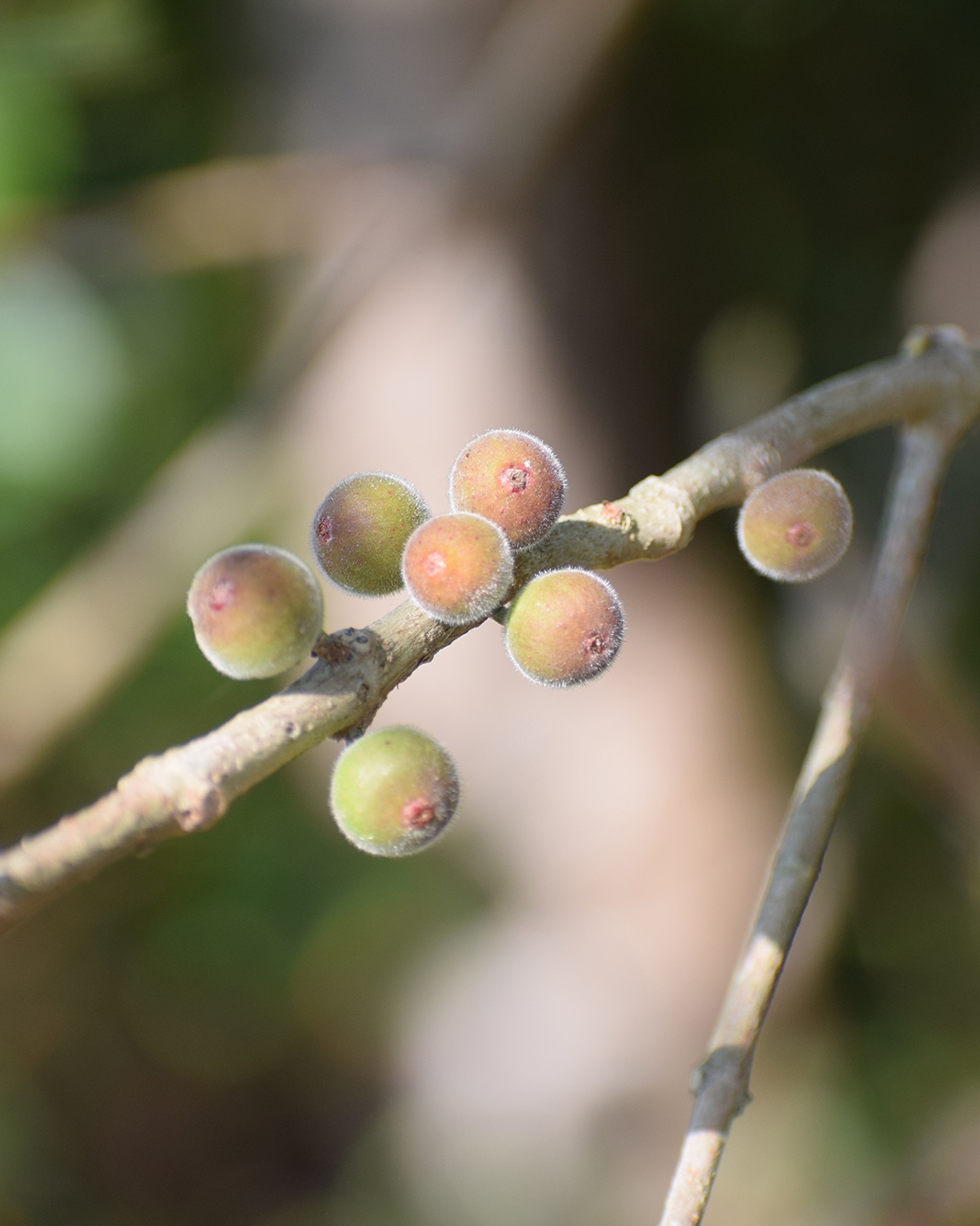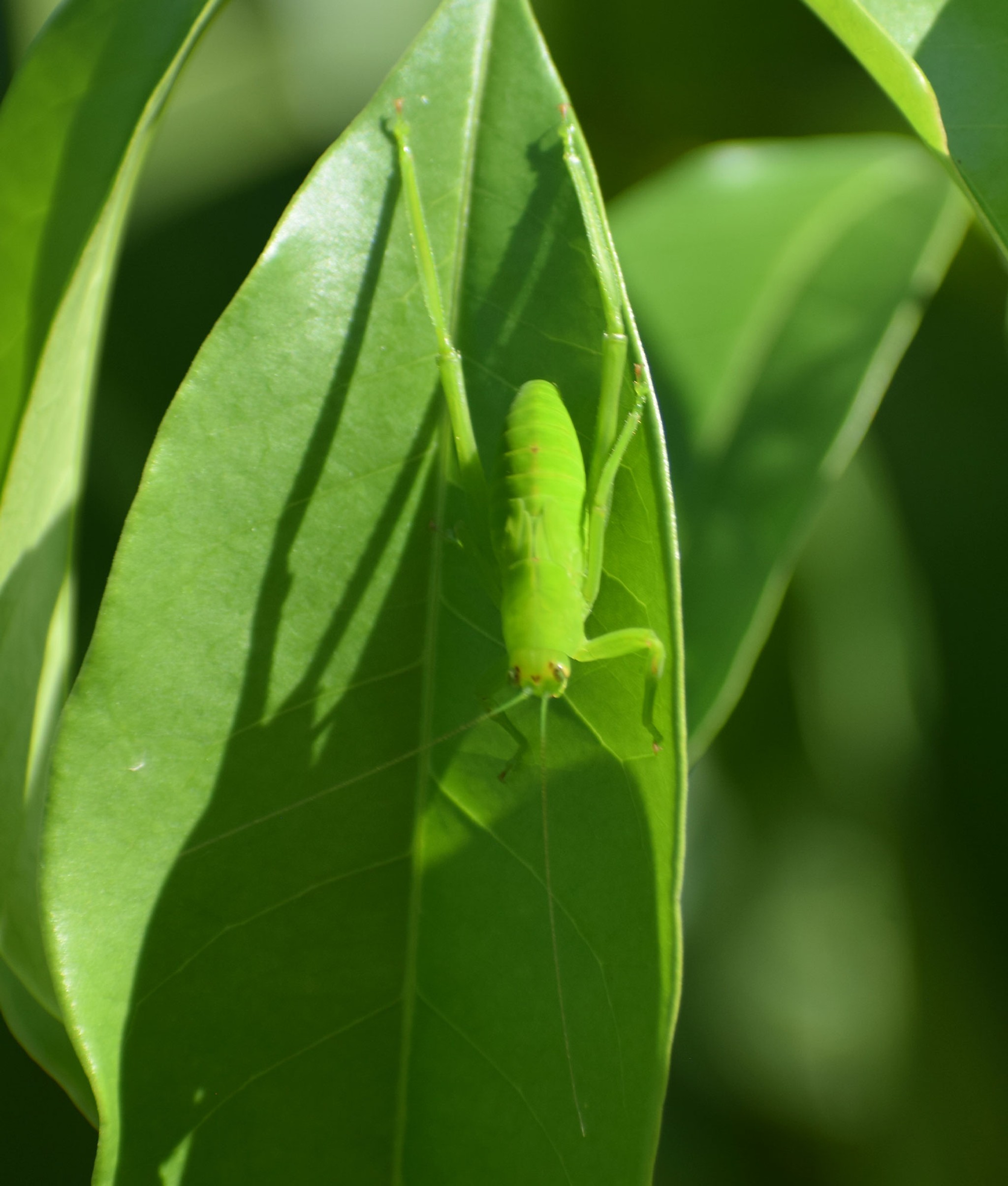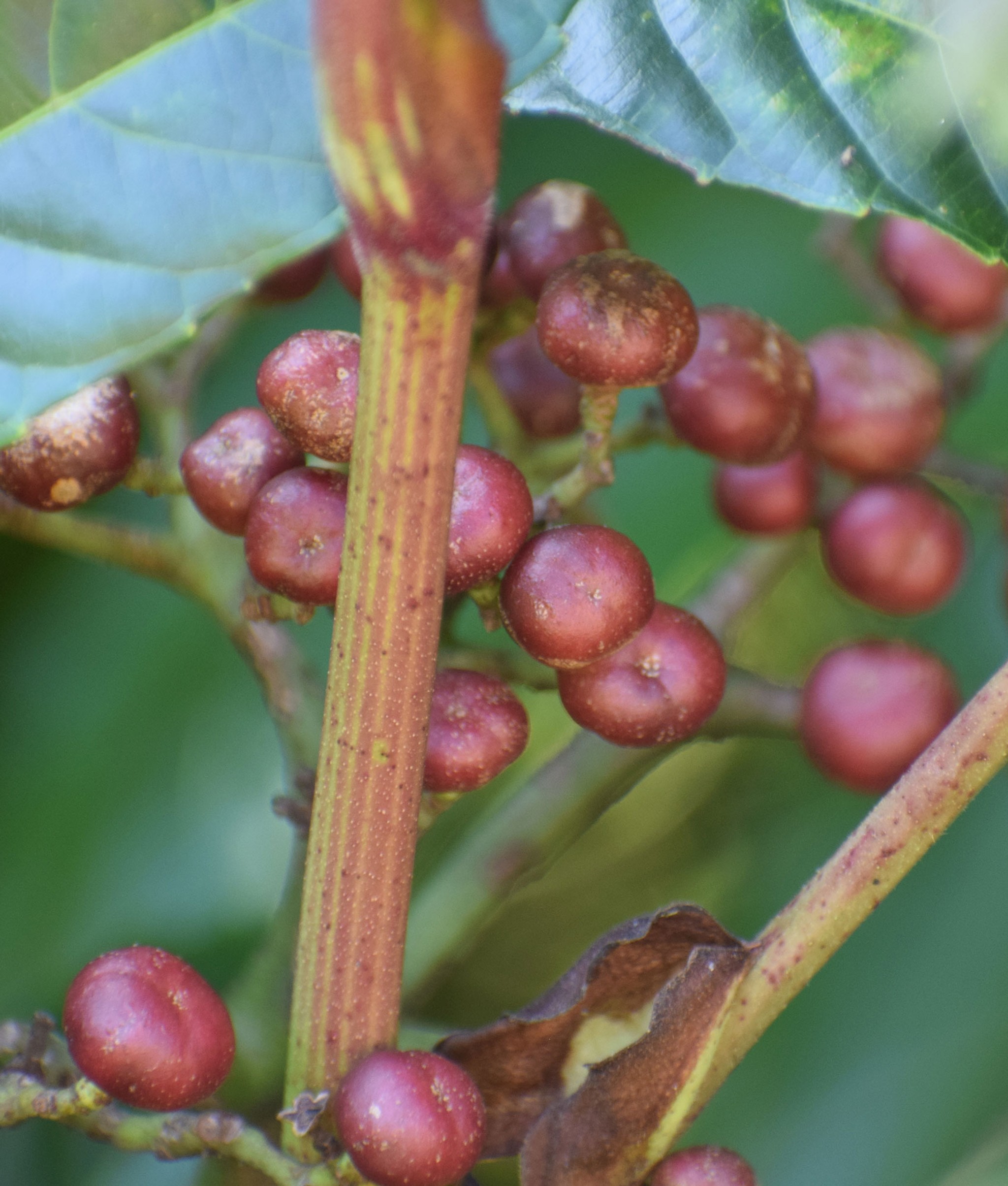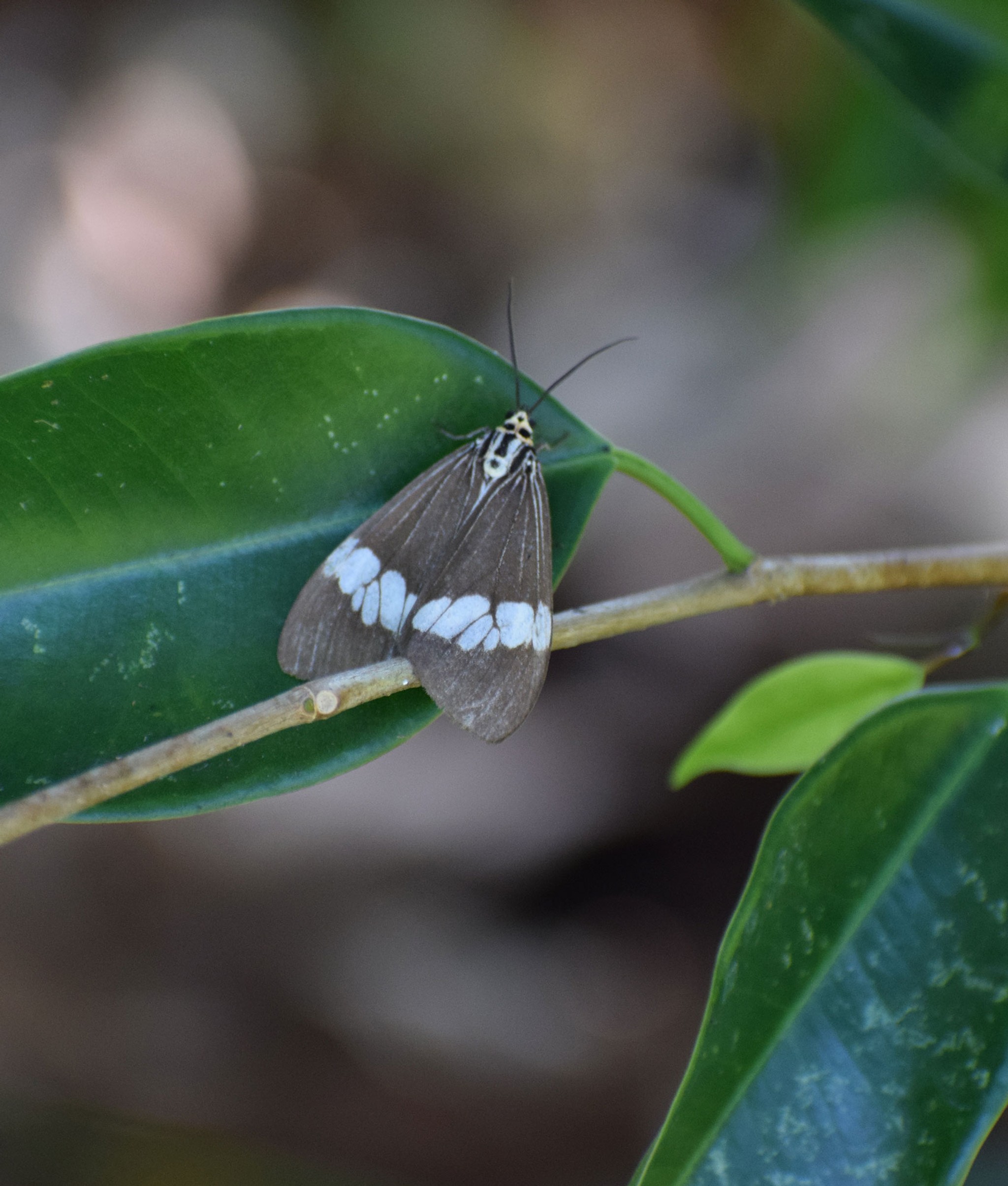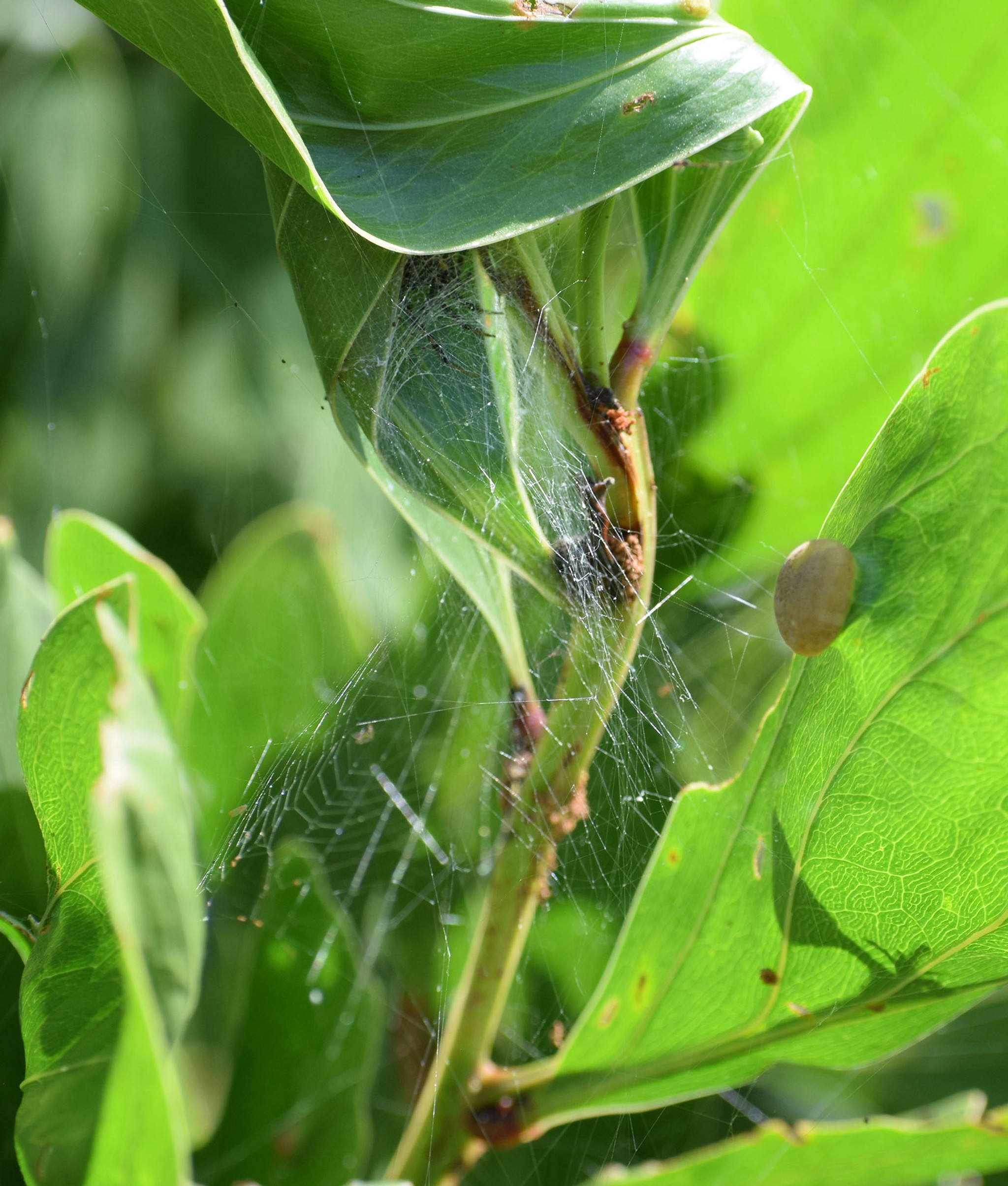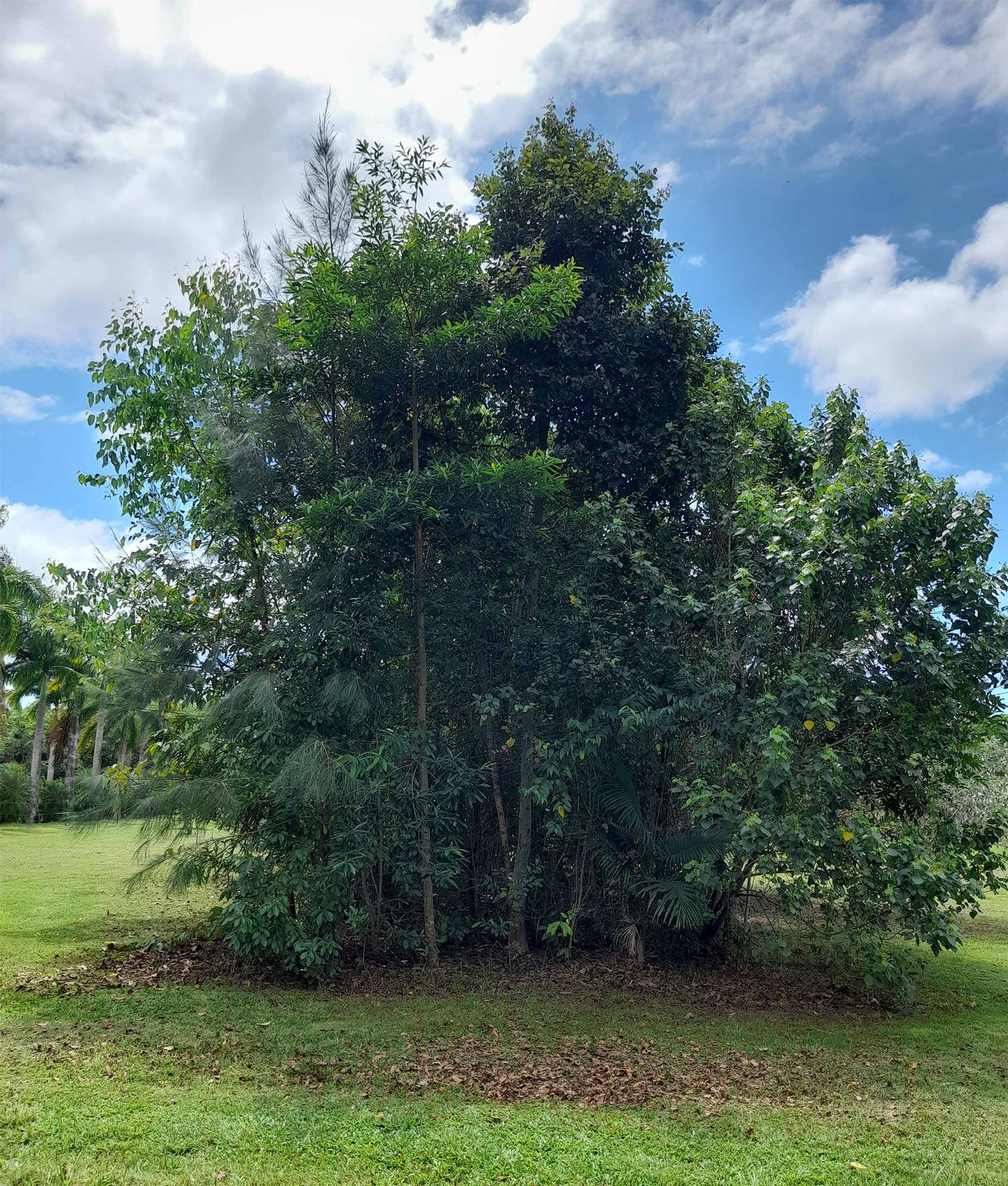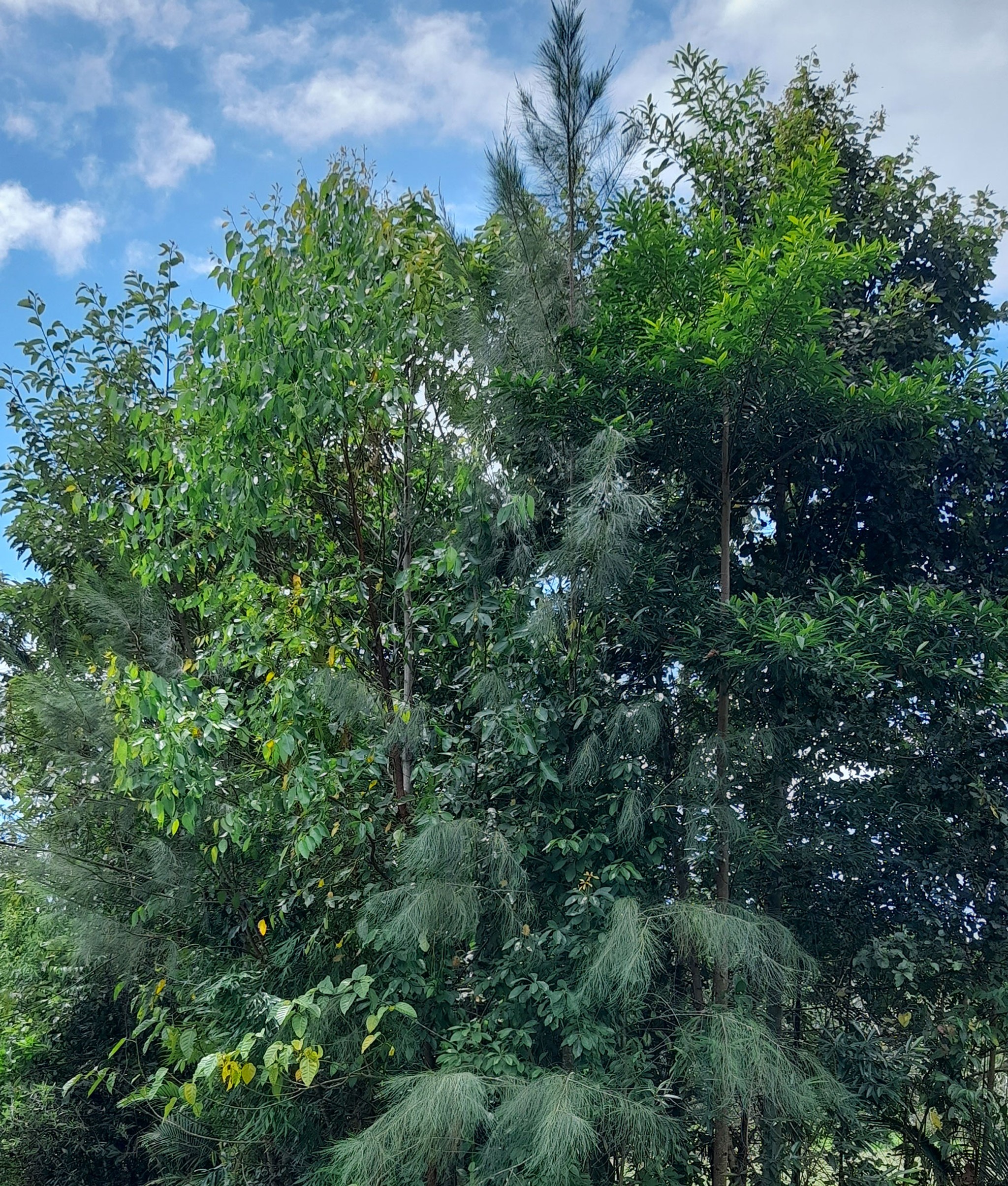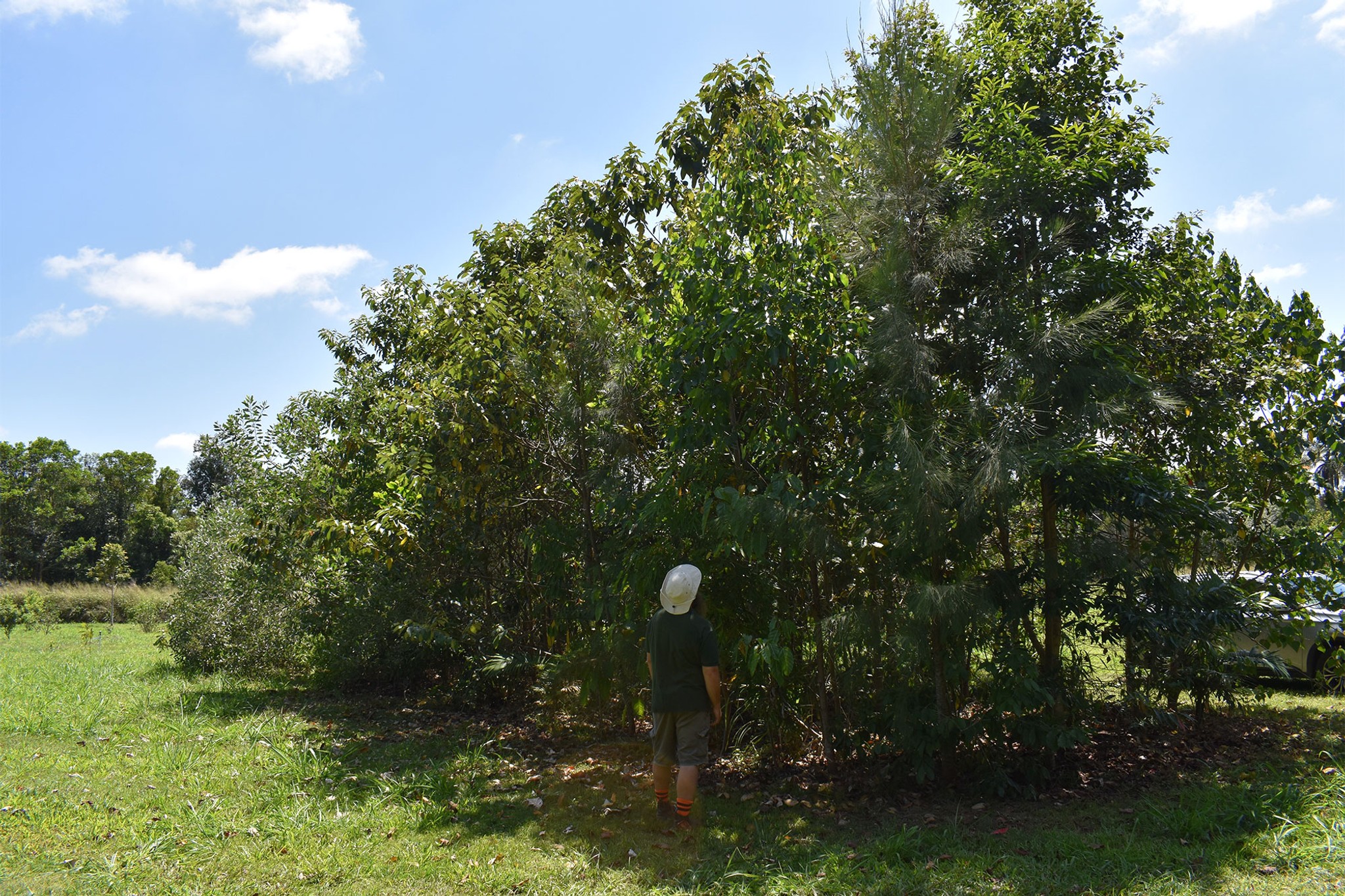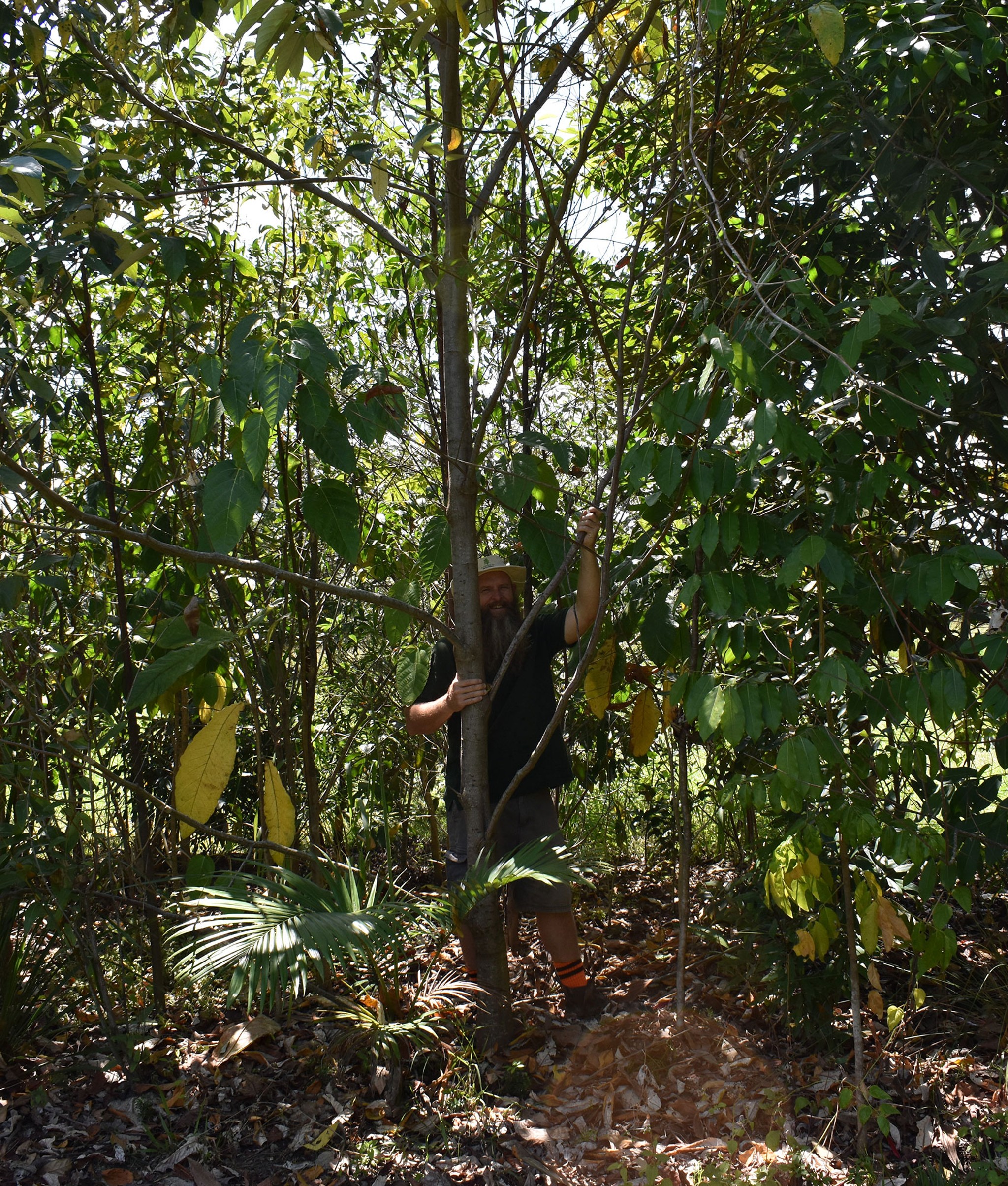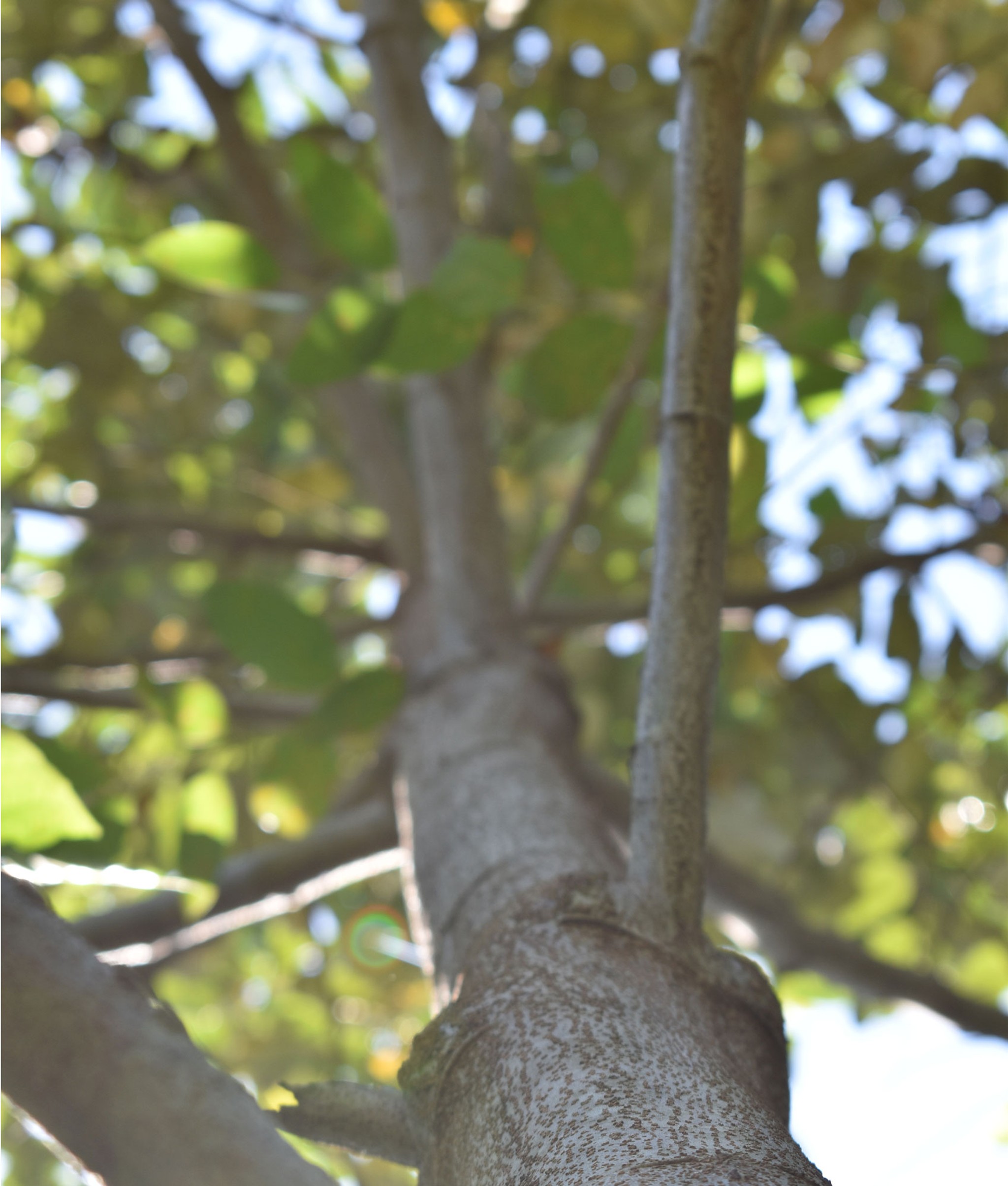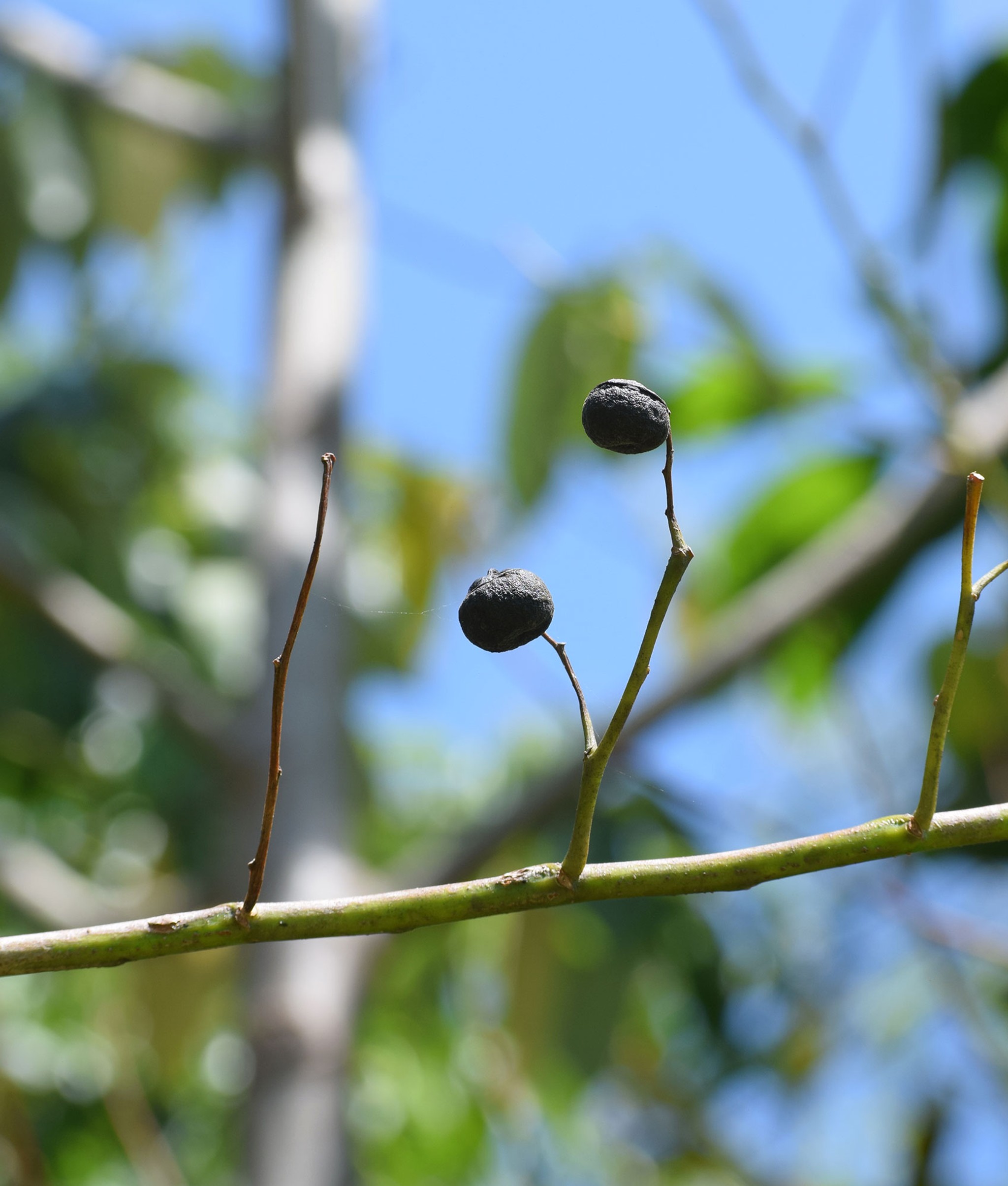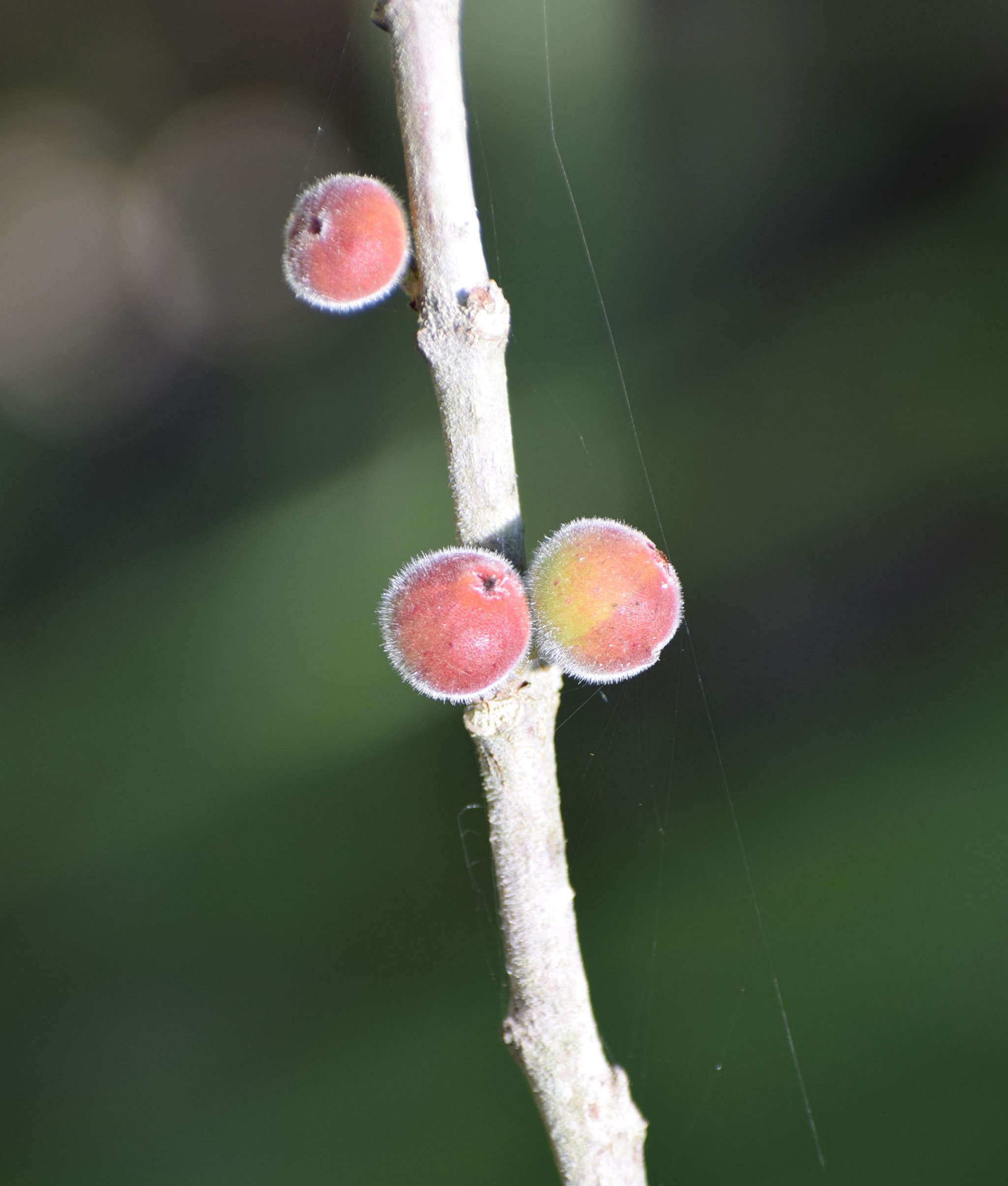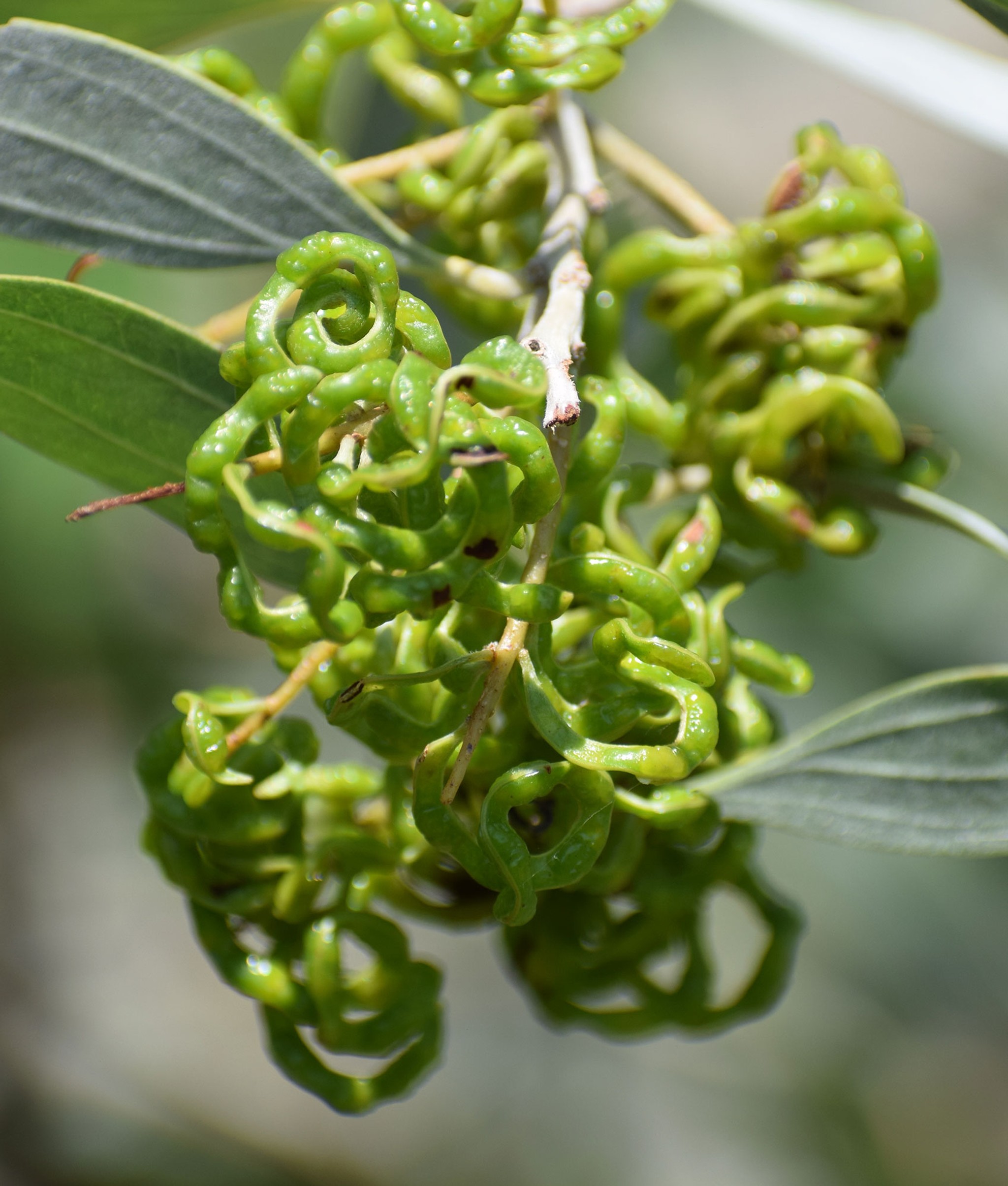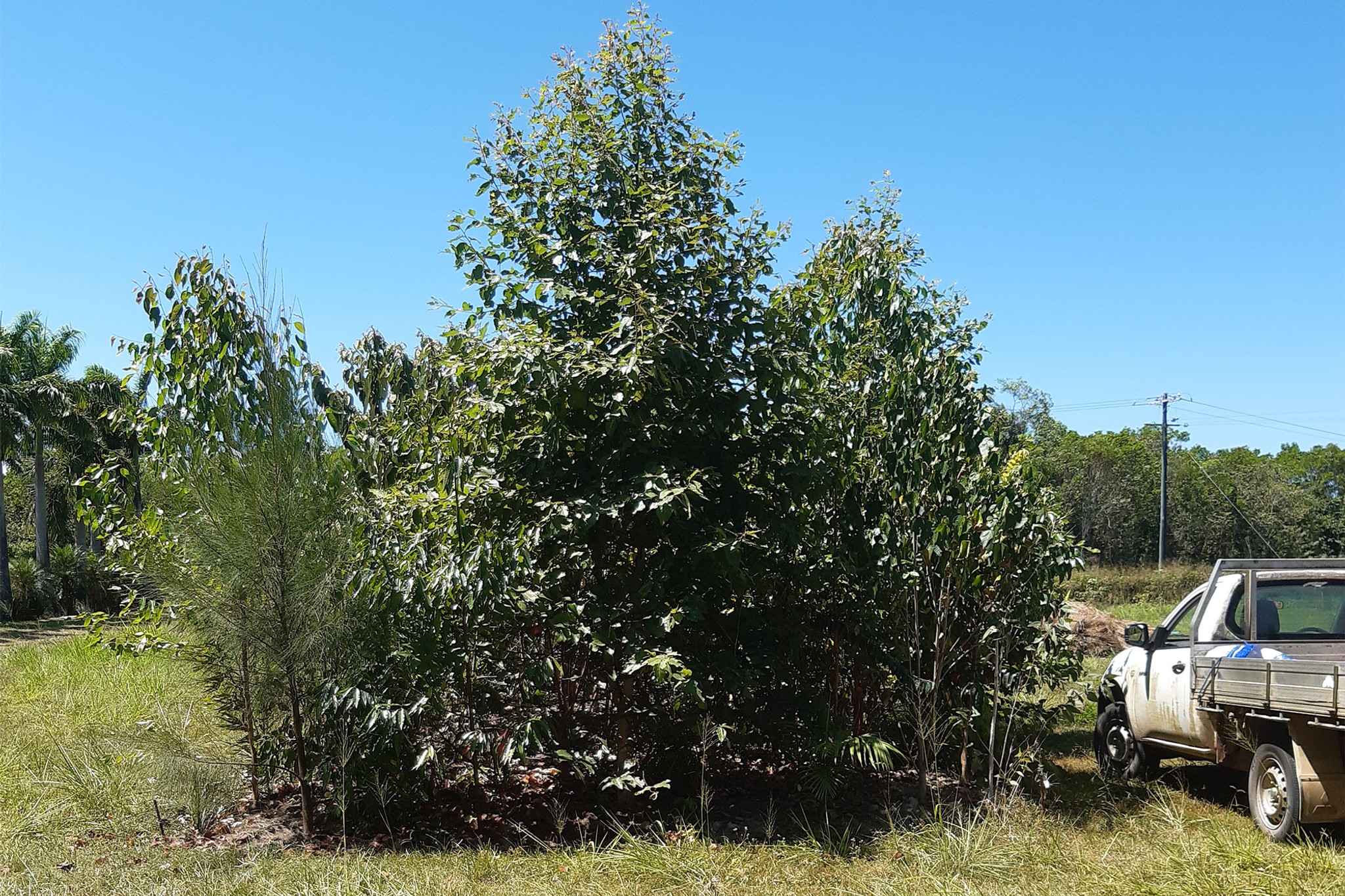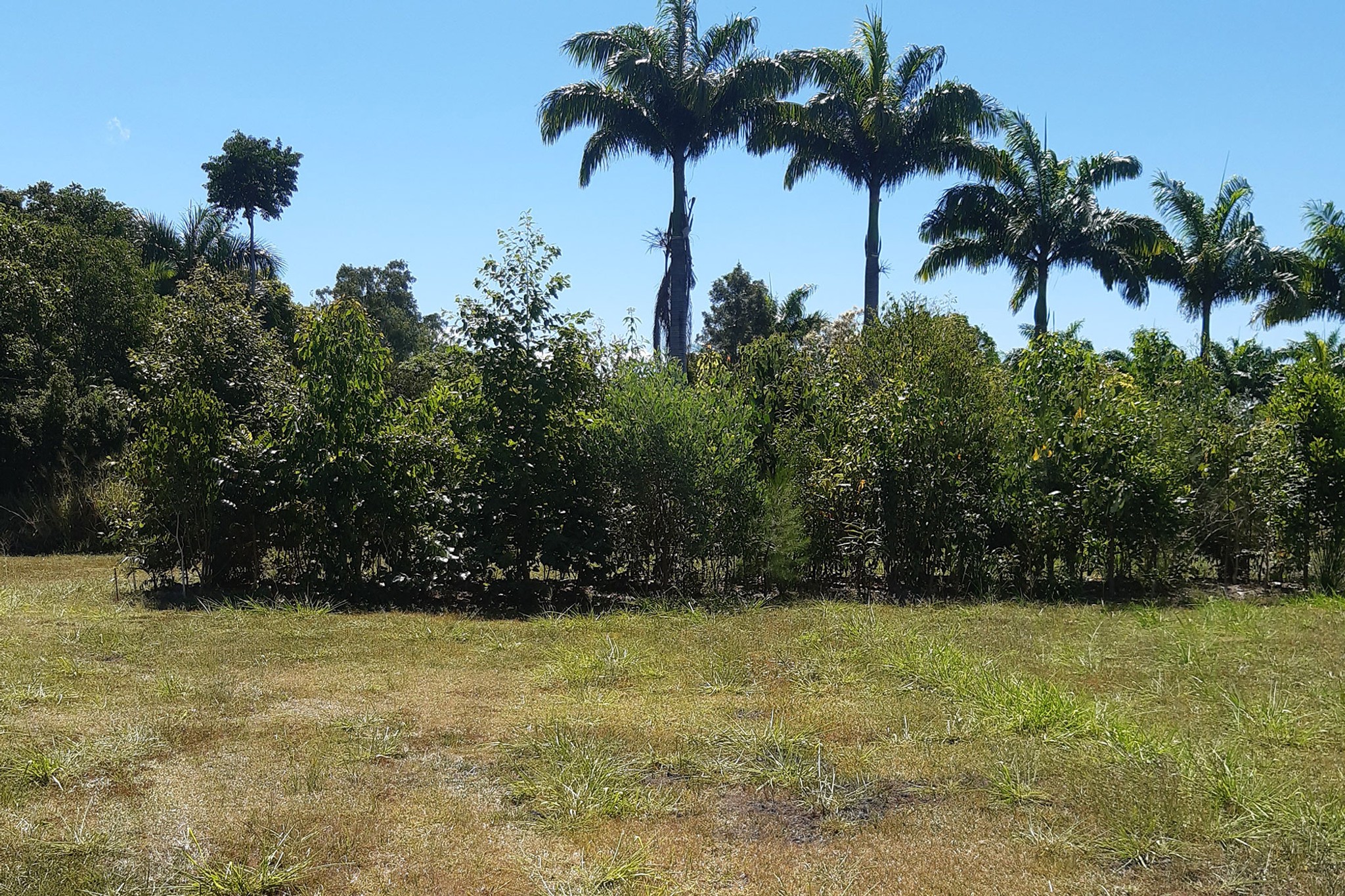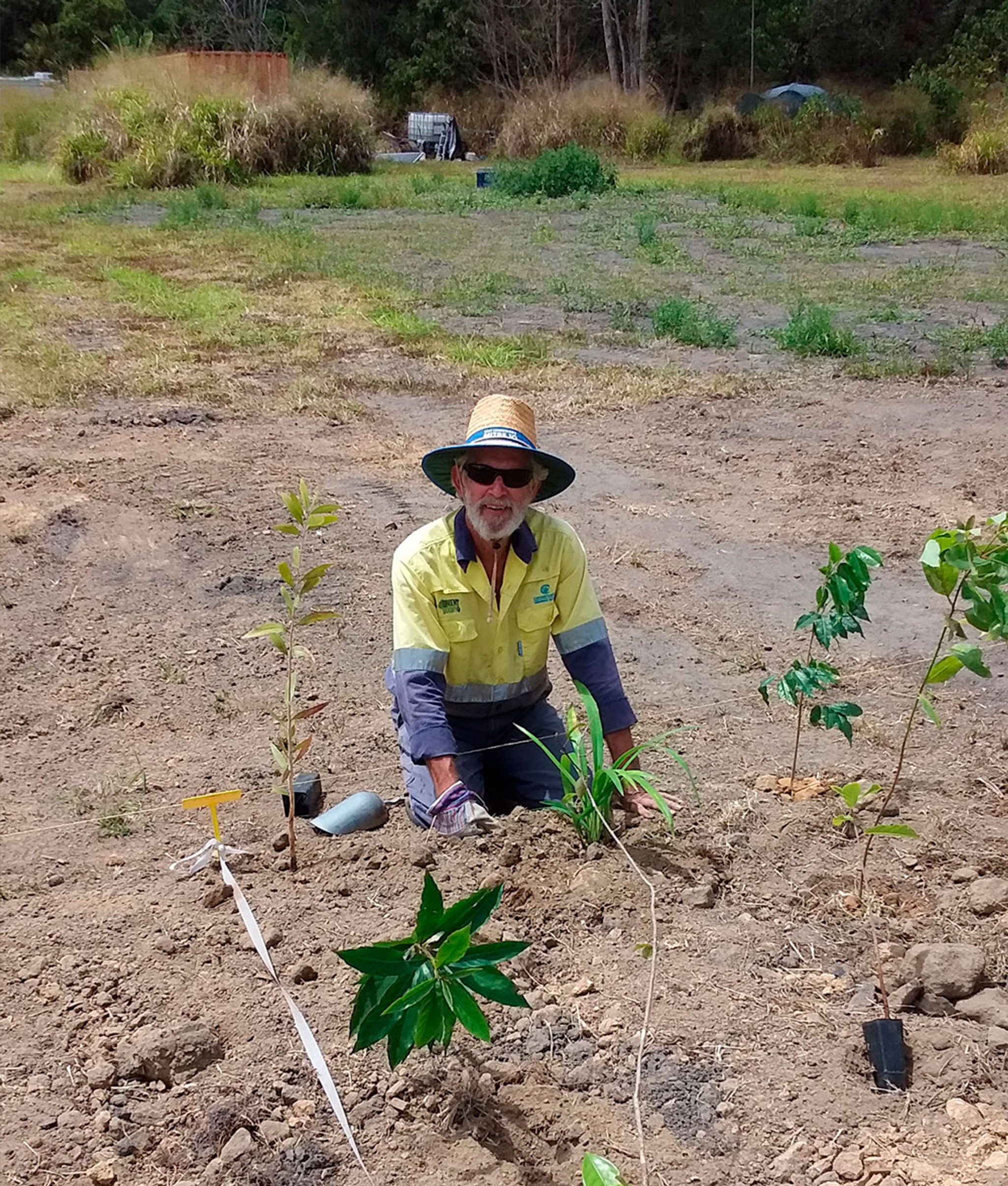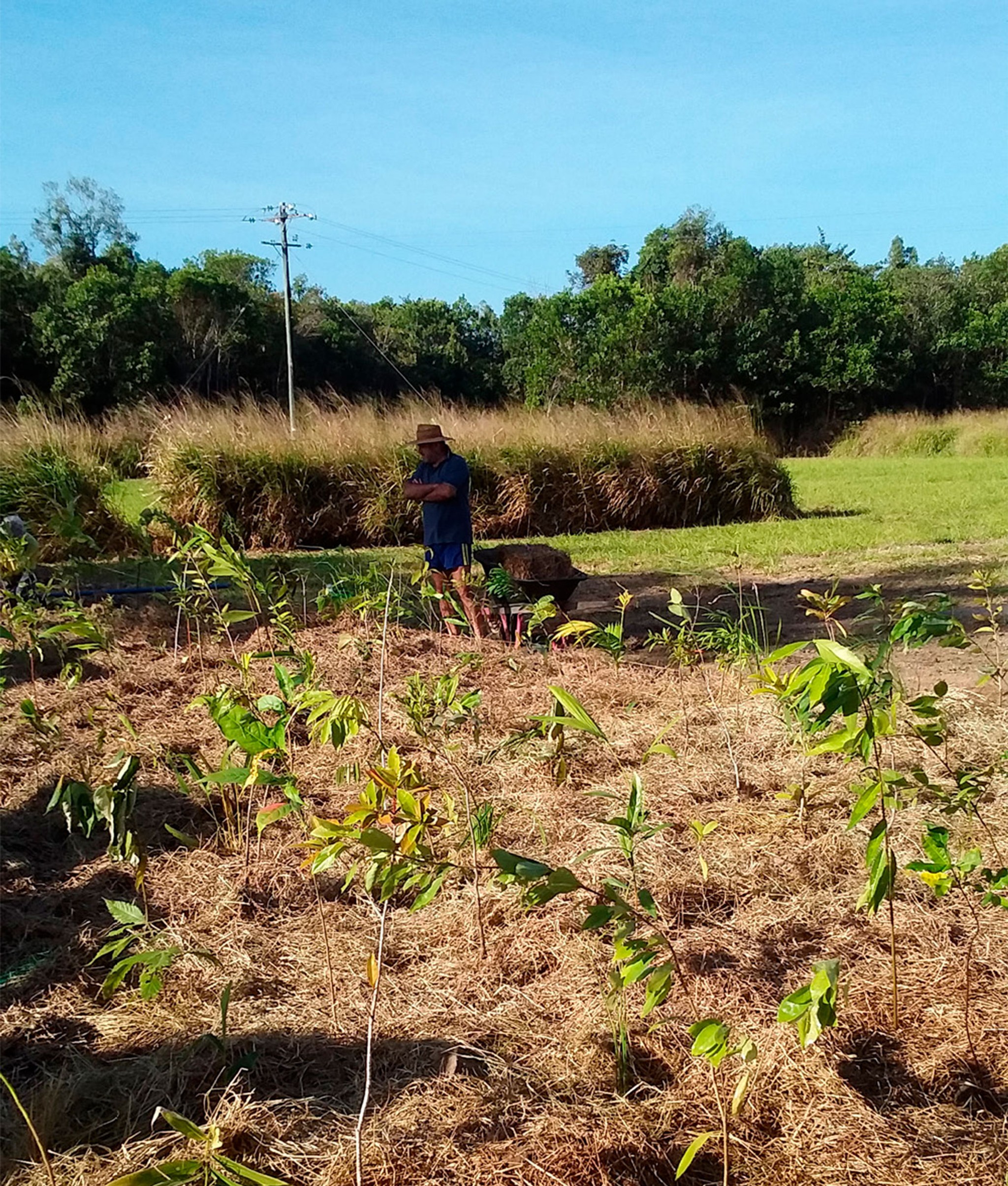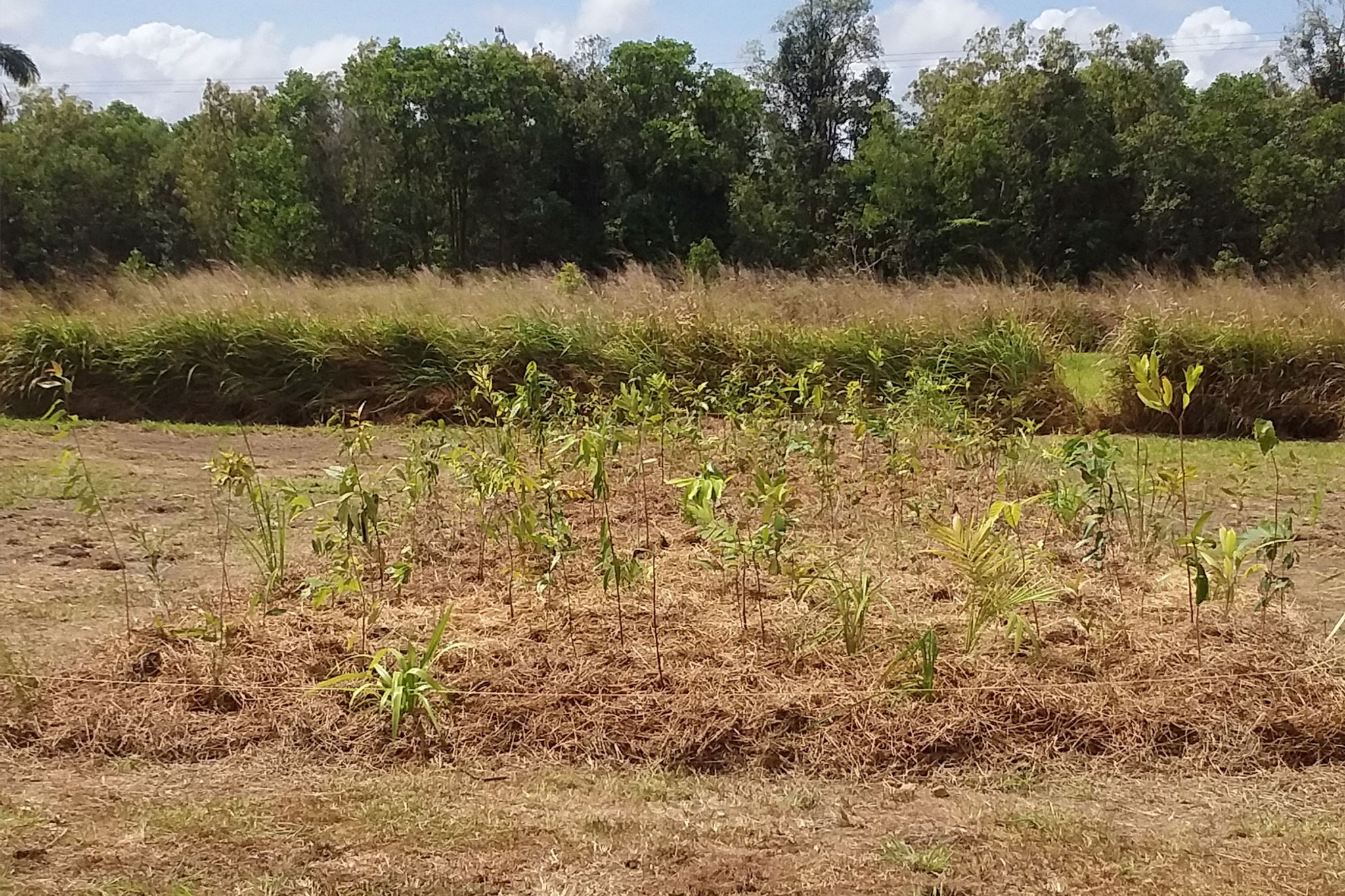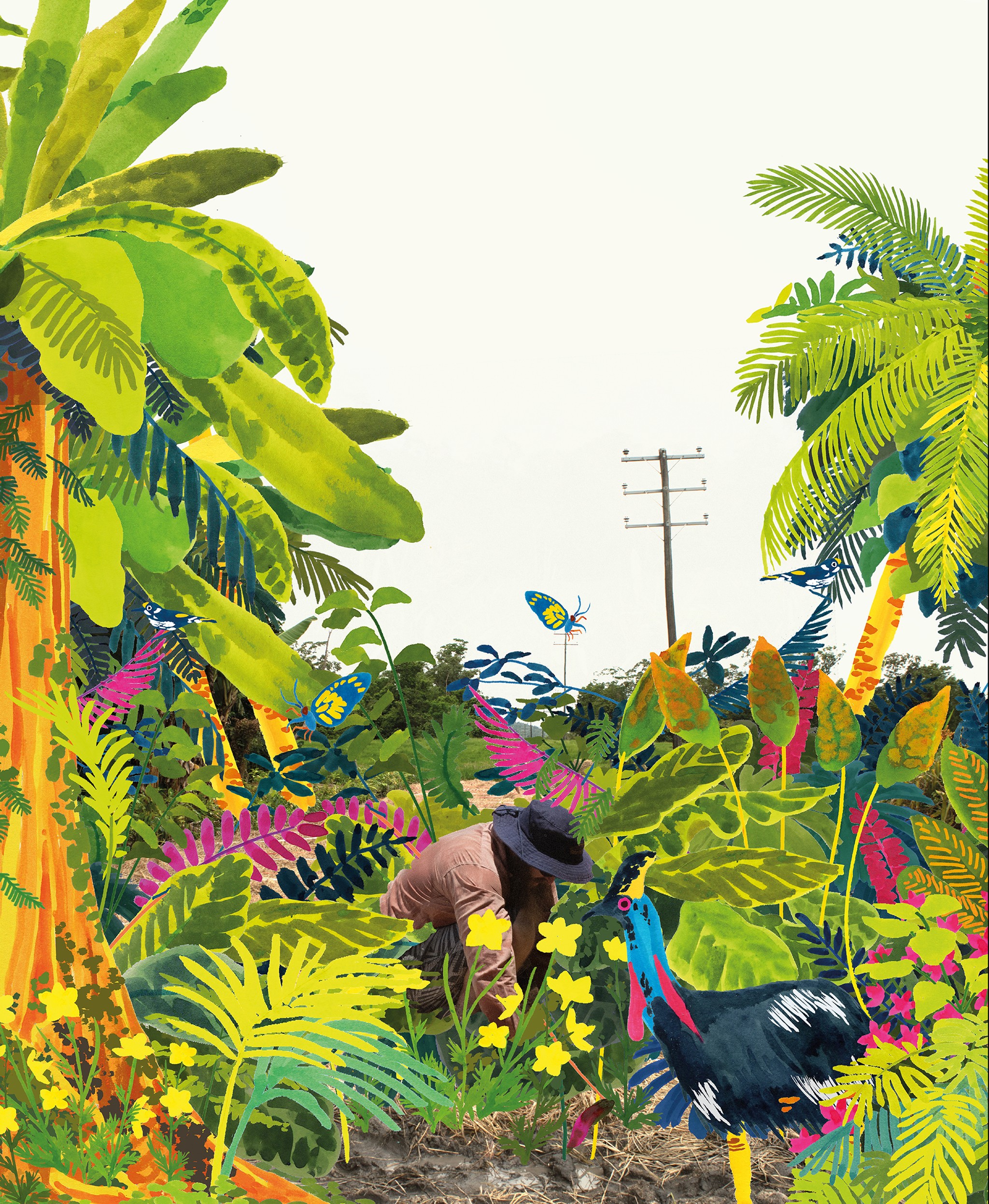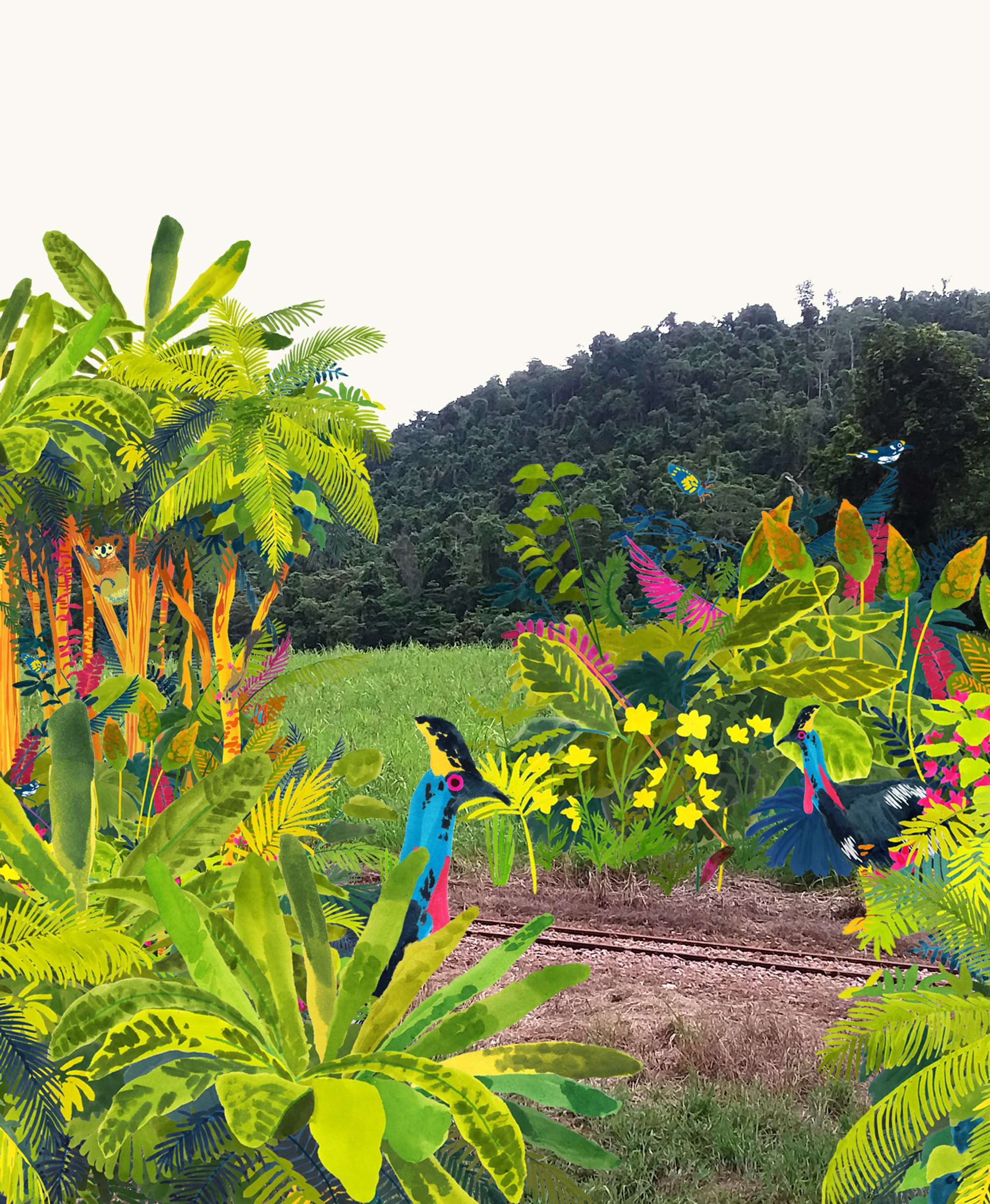Bilyana
Restoring habitat for the endangered Mahogany Glider.

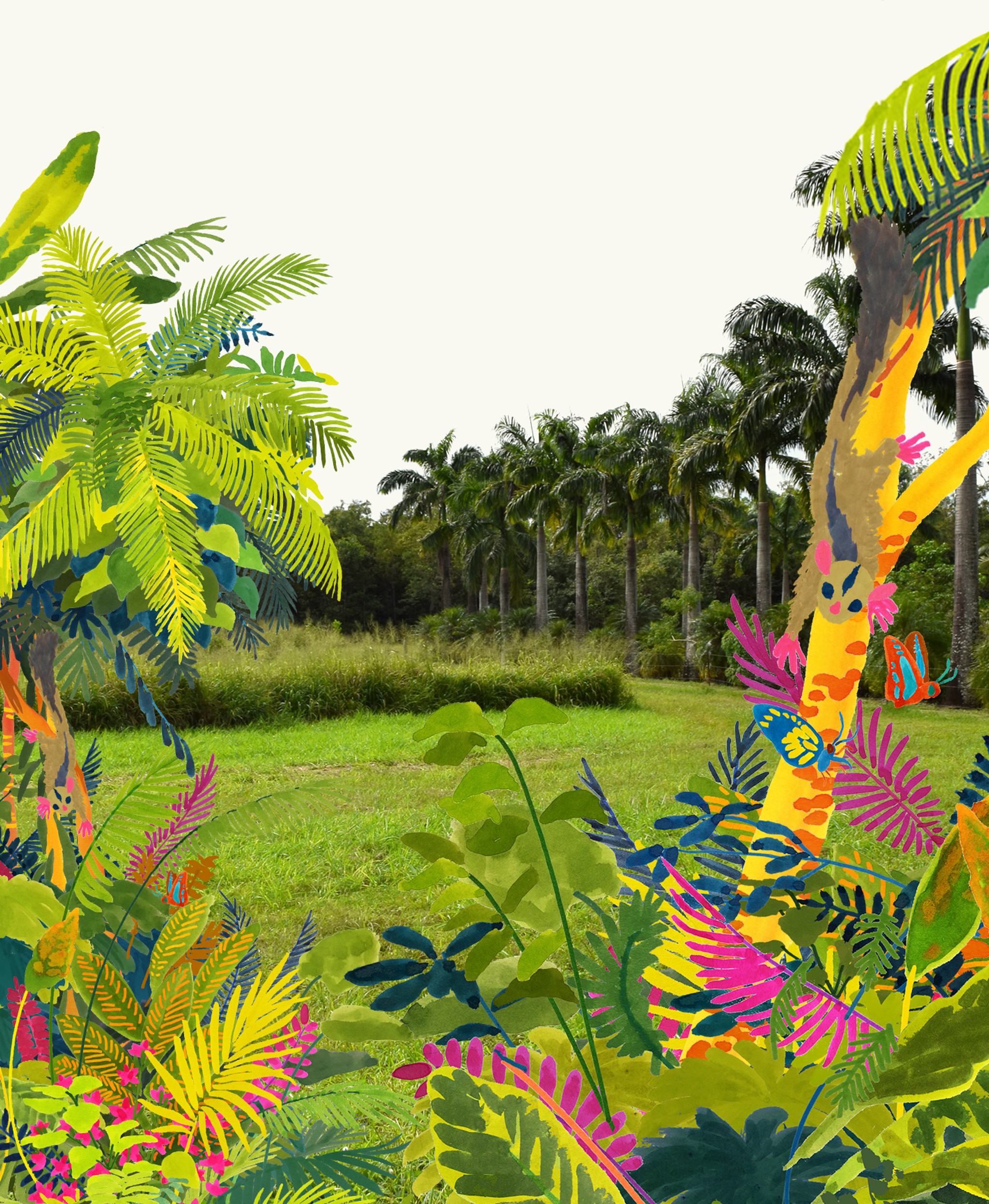
0
Trees
0
Square Meters
0
Native Species
Self Sustaining Forest
Planted in September 2019, this forest has grown into a thriving and dynamic ecosystem, offering a stark contrast to the intensively managed and ecologically depleted land that surrounds it. The forest supports a diverse range of native plant species, including cadaghi (Corymbia torelliana), red mahogany (Eucalyptus pellita), and native grapevine (Cissus antarctica), all of which provide critical habitat for the native mahogany glider (Petaurus gracilis). The glider feeds on nectar, pollen, insects, and the exudates of plants like black wattle (Acacia mangium), another species that can be found here.
The forest is ecologically rich and diverse. Ants create their leaf nests high in the canopy, another important food source for the mahogany glider, and graceful honeyeaters (Microptilotis gracilis) are frequently spotted, feeding on nectar, fruit, and insects found in the flowers and leaves. Even the endangered southern cassowary (Casuarius casuarius) has been observed passing through the forest, further highlighting Bilyana’s role as a vital habitat for native wildlife in this region.
Forest Maker
Brett Krause
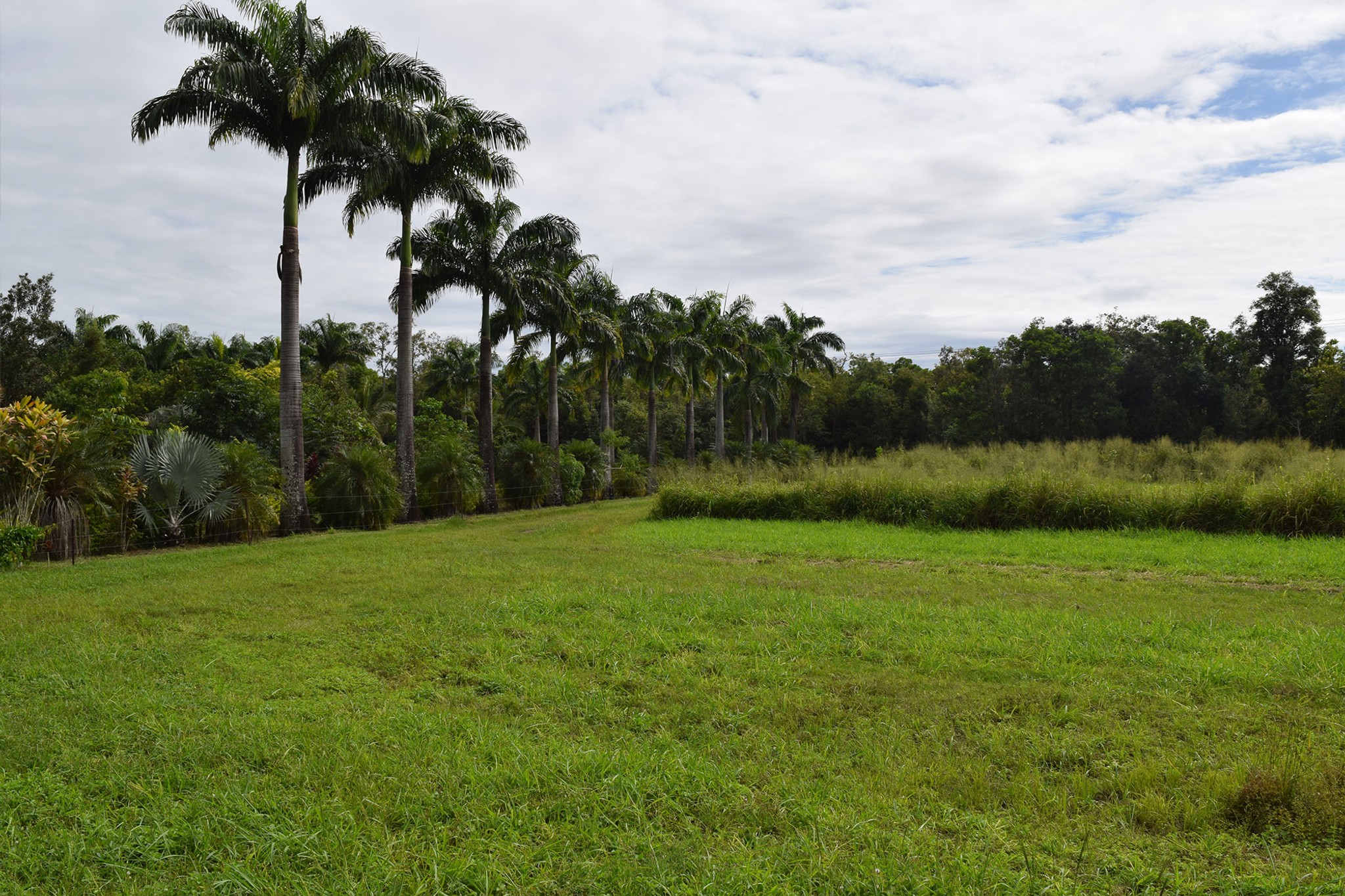
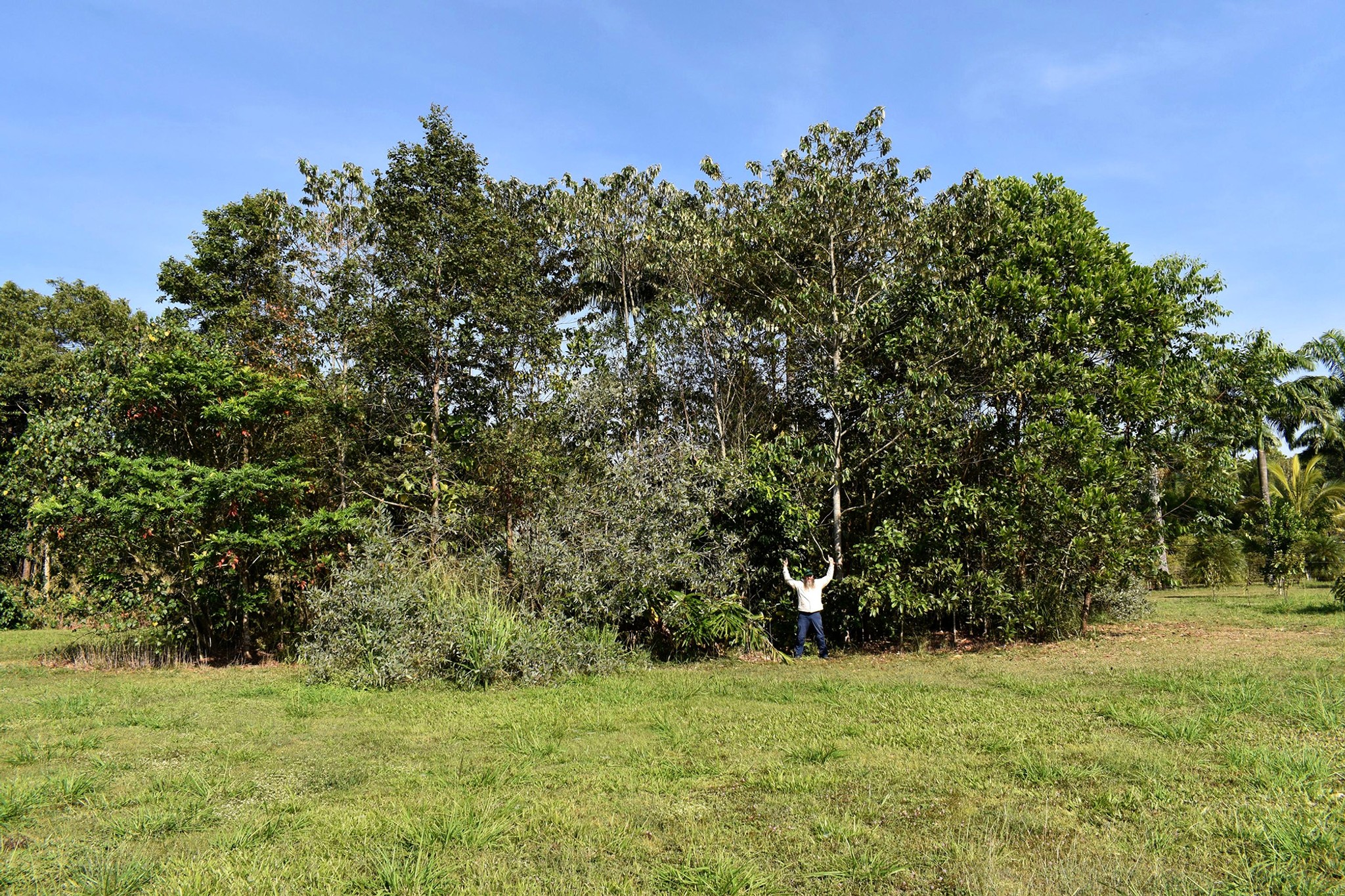
Ecosystem Restored
Final report: 16.12.2024
After approximately three years our SUGi Pocket Forests become self-sustaining. They no longer require human maintenance or watering, and can be handed over to Nature for biodiversity and complexity to naturally develop.
0%
Survival Rate
0
kg of potential CO2 sequestration
Biodiversity
Biodiversity is all the different kinds of life you'll find in one area—the variety of animals, plants, fungi, and even microorganisms like bacteria that make up our natural world. Each of these species and organisms work together in ecosystems, like an intricate web, to maintain balance and support life.
0
Potential number of mammals
0
Potential number of birds
0
Potential number of amphibians
“By rewilding Bilyana we aim to improve the conservation status of the Mahogany Glider through habitat protection and recovery.”
Brett Krause, SUGi Forest Maker
Forest Report: 2022
0 Years
Forest Age
0%
Survival Rate
0m
Average of Tallest 3 Trees
Bilyana is truly thriving, demonstrating how a pocket of native ecosystem can really succeed even when surrounded by intensively-managed and ecologically-poor land. Forest floor and leaf litter is established, with zero weed penetration. The forest is now self-sustaining. New floral species are growing in the forest from bird droppings.
Biodiversity Notes:
Trees are flowering well, including the Sandpaper Fig (Ficus opposita), White Ash (Alphitonia petreii) and Cadaghi (Corymbia torreliana). The endangered Southern Cassowary bird (Casuarius casuarius) has also been spotted in the forest.
“Our pioneer species are coming in well! With a bit of rain recently, our trees are growing well, beginning to reshoot and flower. We are observing more life and biodiversity: insects are making their nests, there are lizards, and plenty of worms! The Southern Cassowary has been spotted in our forest!”
Brett Krause, SUGi Forest Maker
Forest Report: 2021
0 Years
Forest Age
0%
Survival Rate
0m
Tallest Tree
Forest floor and leaf litter established. Zero weed penetration. The forest is self-sustaining; it has been a great growing season with above average rainfall.
Biodiversity Notes:
Trees are flowering well, including the Sandpaper Fig (Ficus opposita), White Ash (Alphitonia petreii) and Cadaghi (Corymbia torreliana). The endangered Southern Cassowary bird (Casuarius casuarius) has also been spotted in the forest.
Forest Report: 2020
0 Months

